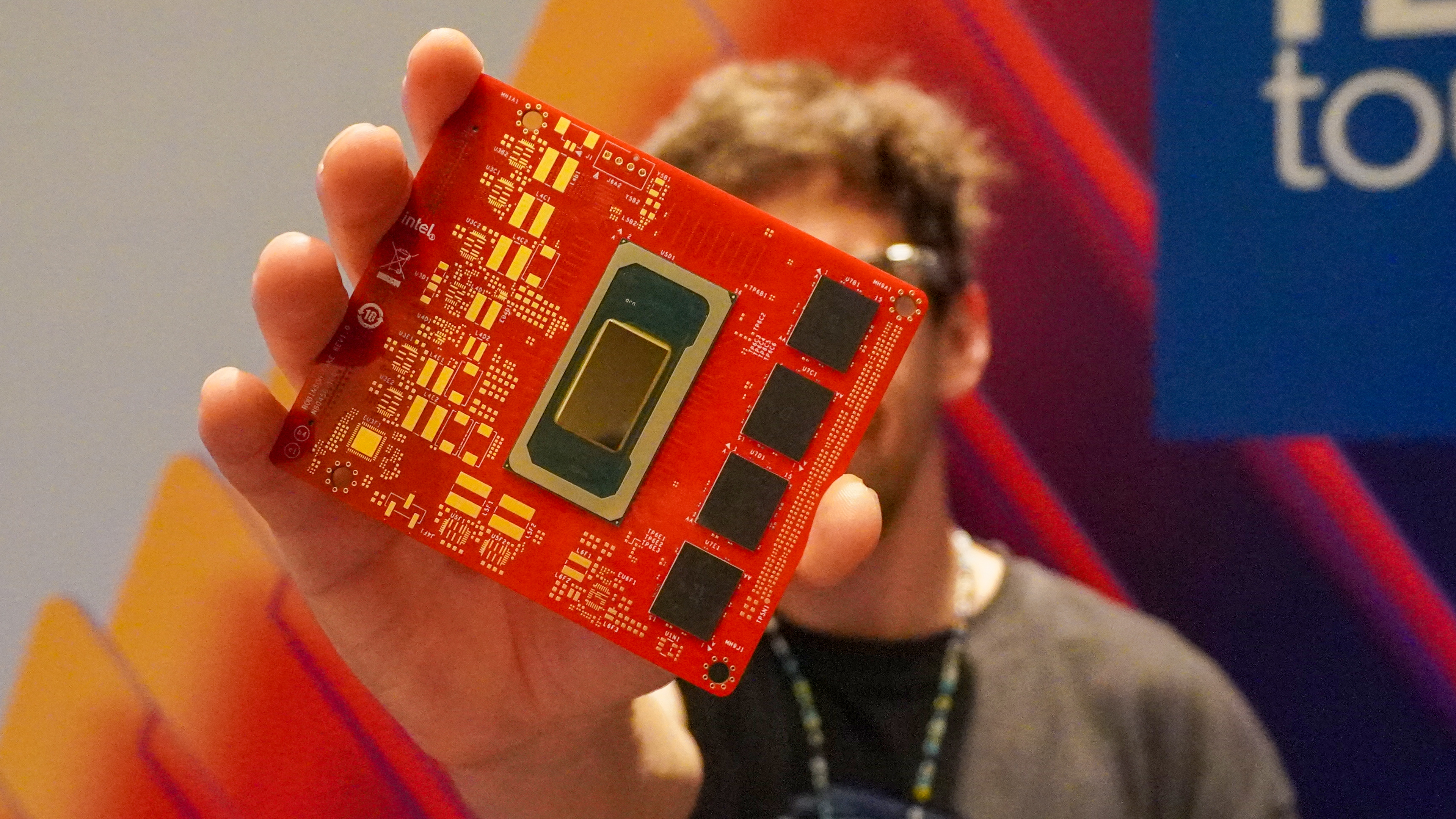These are the best mesh Wi-Fi systems we've tested to say goodbye to Wi-Fi dead zones for good
Cover your whole house with a strong Wi-Fi signal with this one essential upgrade
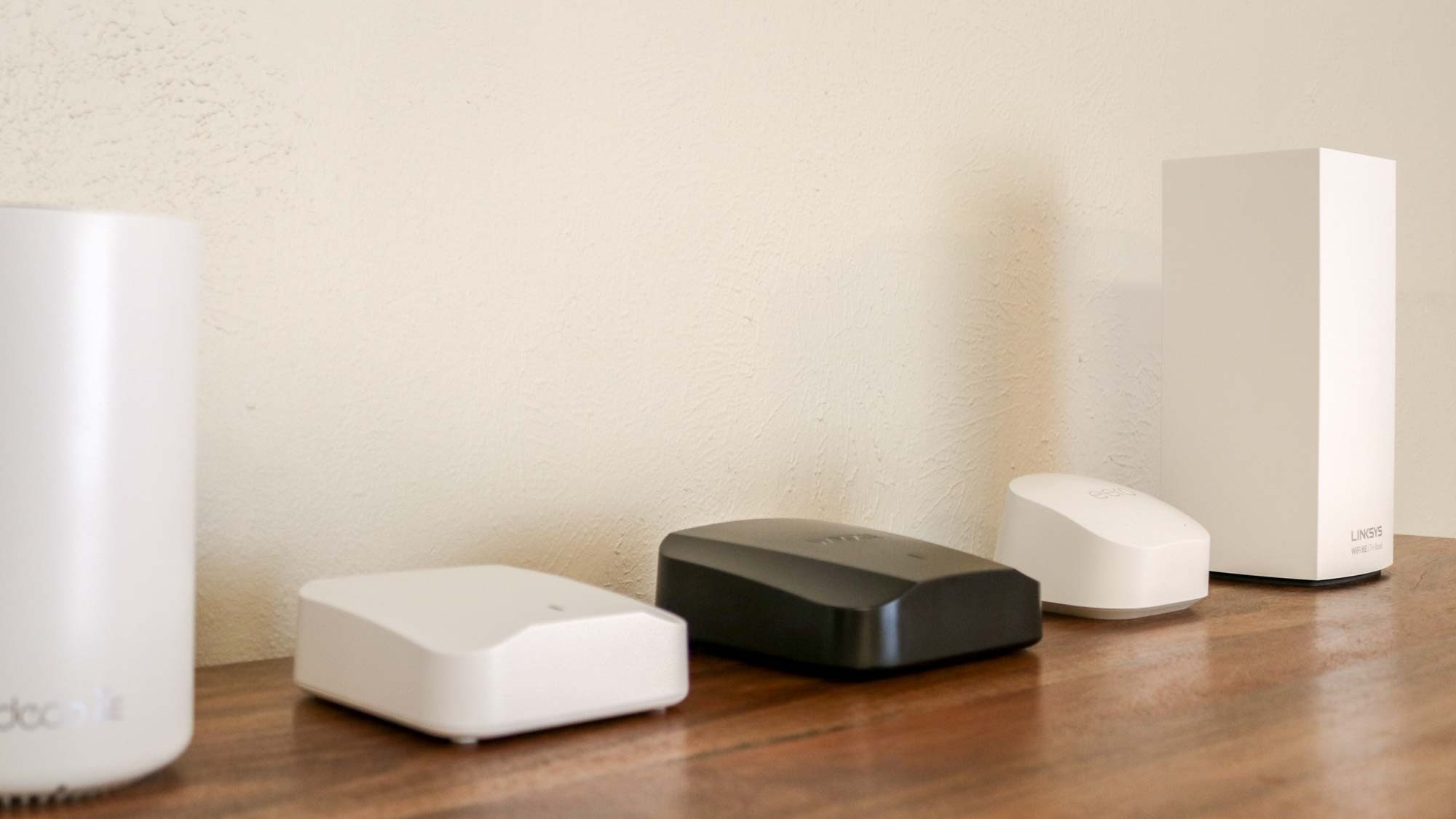
After moving into a larger home, I struggled with Wi-Fi dead zones. No matter what I did, there were still parts of my house where I couldn’t get a signal. I tried a Wi-Fi extender and powerline adapters to fix the issue, but it wasn’t until I upgraded to one of the best mesh Wi-Fi systems that I finally said goodbye to my dead zones for good.
To determine which mesh Wi-Fi systems are the best, we put them through extensive real-world testing in an actual home. This includes running speed tests and other benchmarks at multiple distances as well as seeing how well these kits work together when combined into a single network, and how data moves through objects and walls.
Whether you want to build a capable mesh network on a budget or push the speeds of your internet connection to the limit with the latest wireless tech, these are the best mesh Wi-Fi systems you can buy right now based on our testing and reviews. Just want our top pick? That'd be the Asus ZenWiFi BQ16 Pro.
The quick list
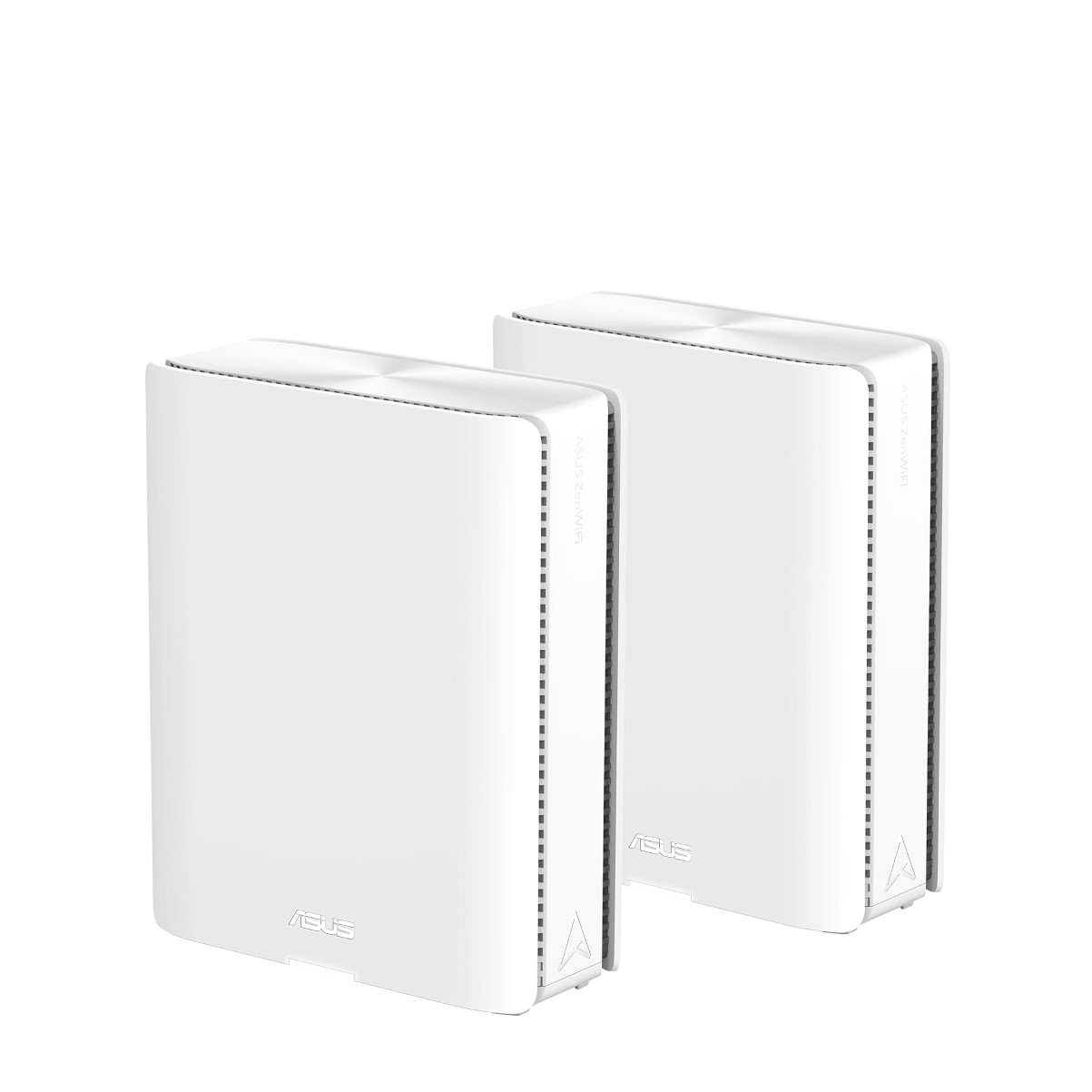
This blazing fast mesh Wi-Fi system takes Wi-Fi 7 speeds to the limit, comes with built-in security software and reached a max speed of 2.6 Gbps in our tests.
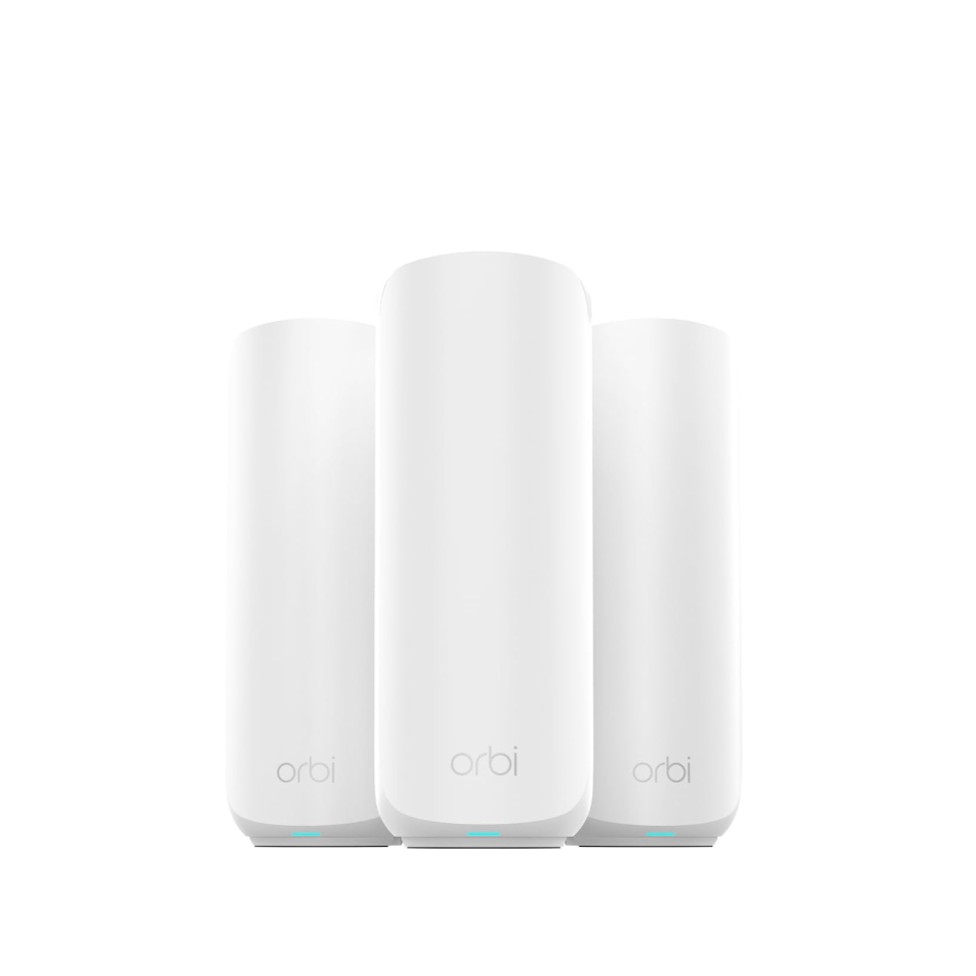
This affordable and compact mesh Wi-Fi system comes equipped with dual-band Wi-Fi 7 support and several multi-gig ports and hit a max speed of 1.07 Gbps in our tests.
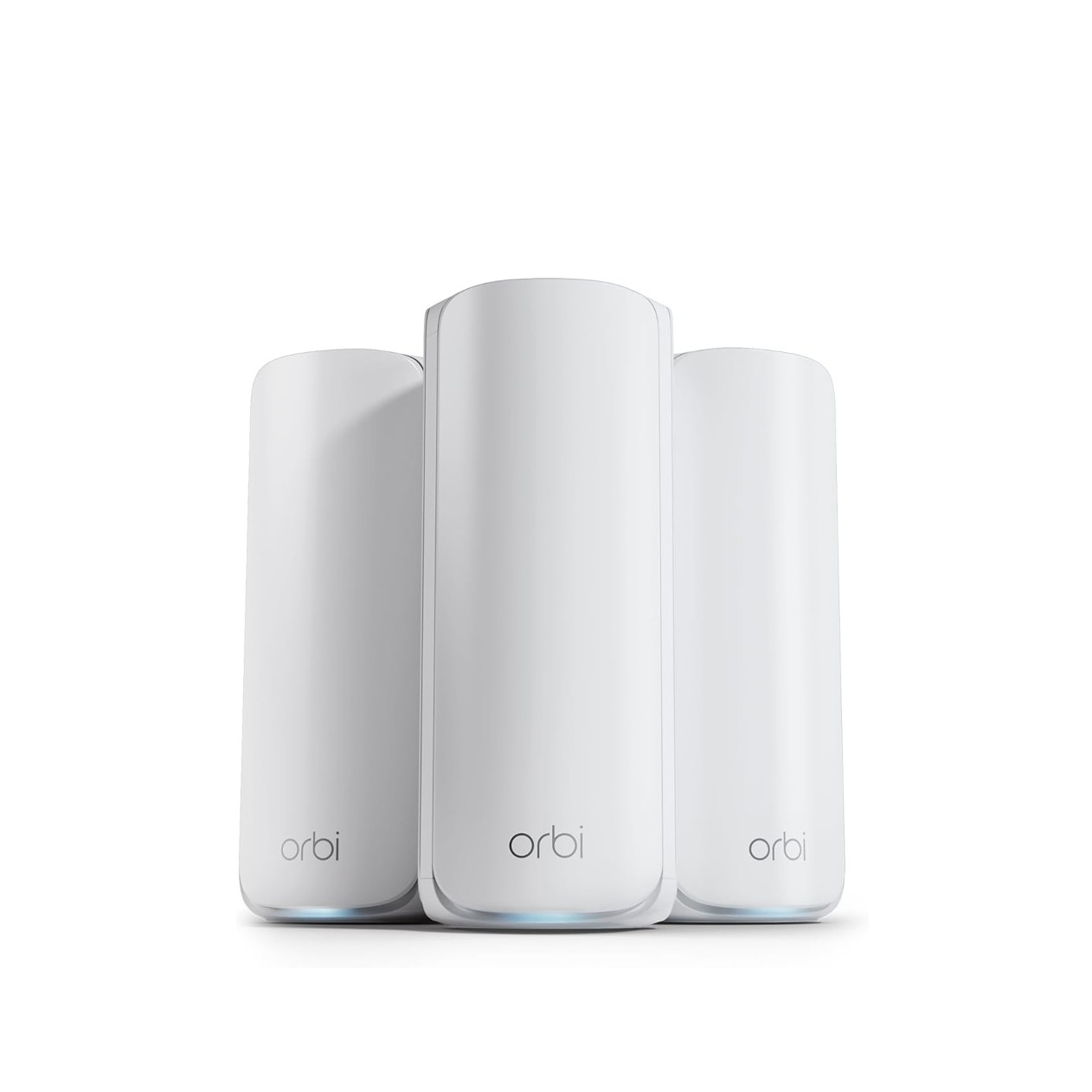
This high-performing mesh Wi-Fi system features Wi–Fi 7 support, comes with plenty of multi-gig ports, offers excellent range and reached a max speed of 1.83 Gbps in our tests.
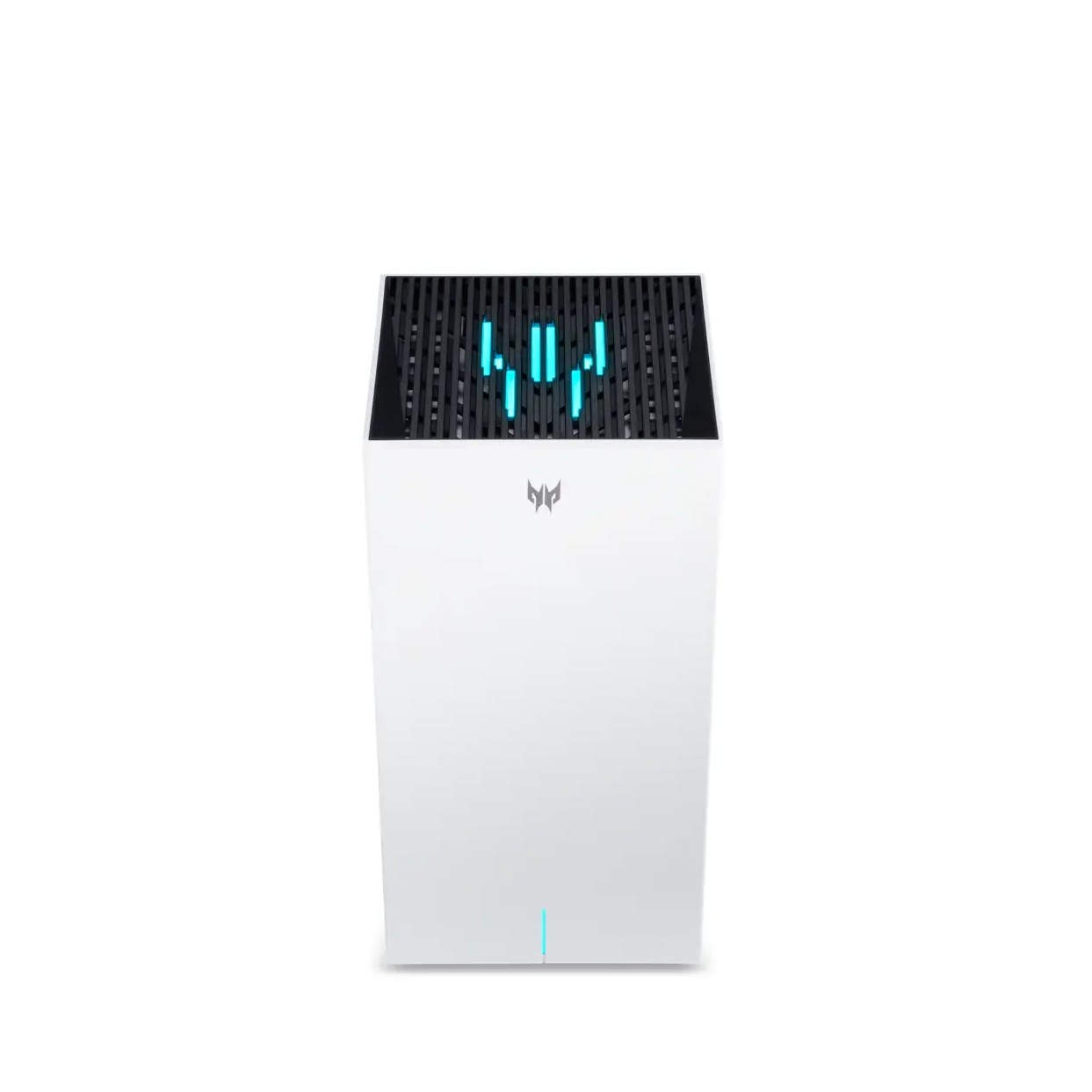
This gamer-focused mesh Wi-Fi system features a low-latency design thanks to Wi-Fi 7 support, is easy to set up, comes with built-in security software and reached a max speed of 1.92 Gbps in our tests.
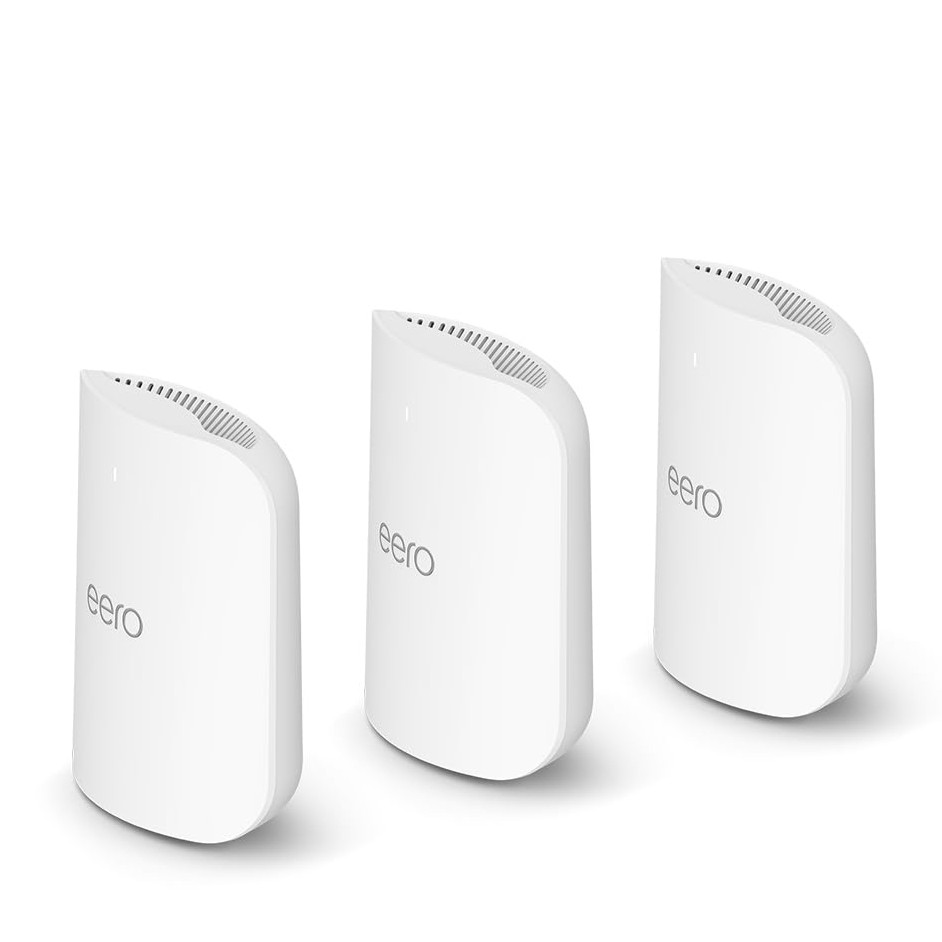
This sleek mesh Wi-Fi system features full Wi-Fi 7 support, is incredibly simple to set up and use, works well with your Alexa smart home devices and reached a max speed of 1.9 Gbps in our tests.
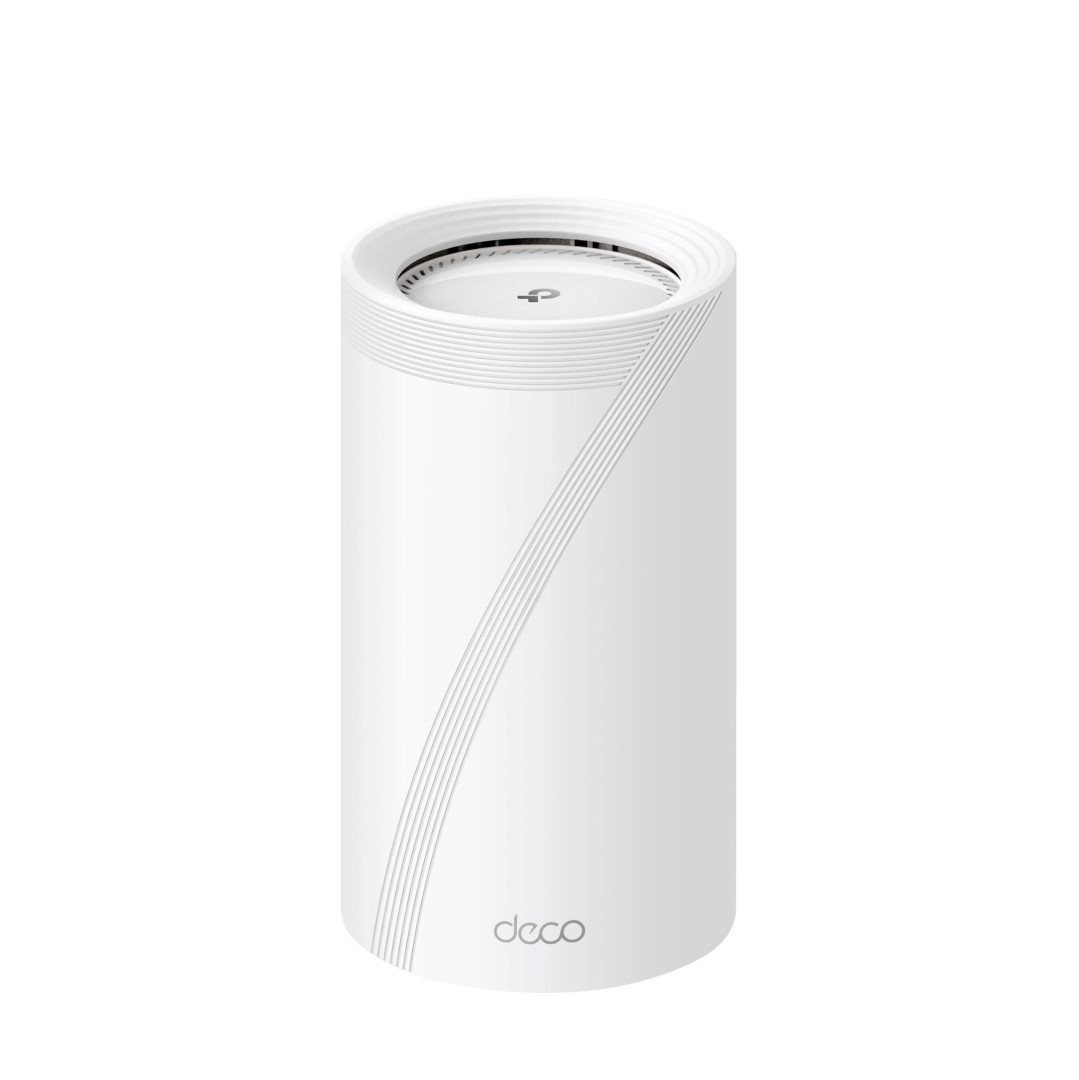
This powerful mesh Wi-Fi system makes full use of Wi-Fi 7’s features, can be set up quickly, comes with a one cable connection for fiber internet and reached a max speed of 1.73 Gbps in our tests.
The best mesh Wi-Fi systems you can buy today
Why you can trust Tom's Guide
The best mesh Wi Fi system overall
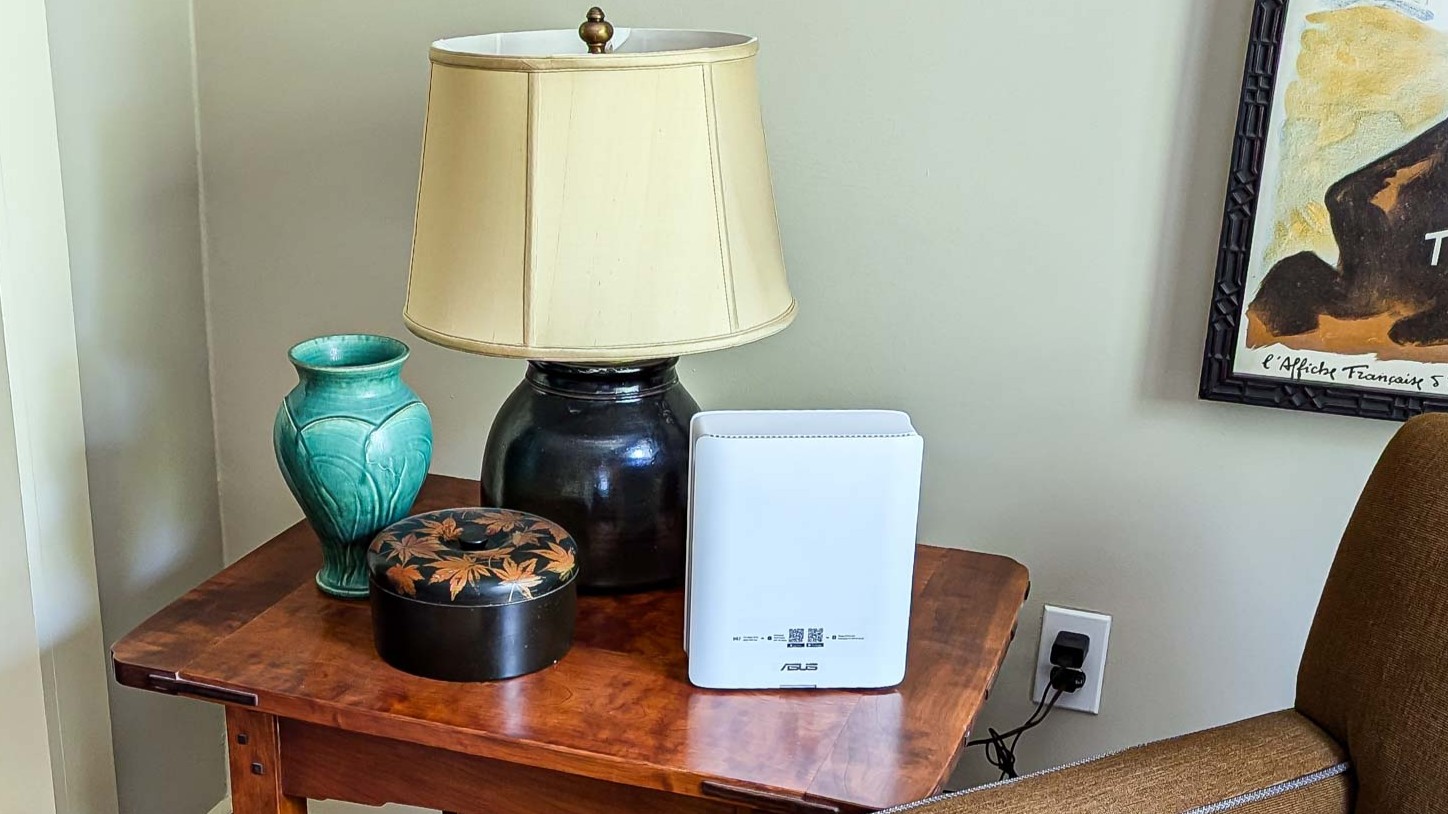
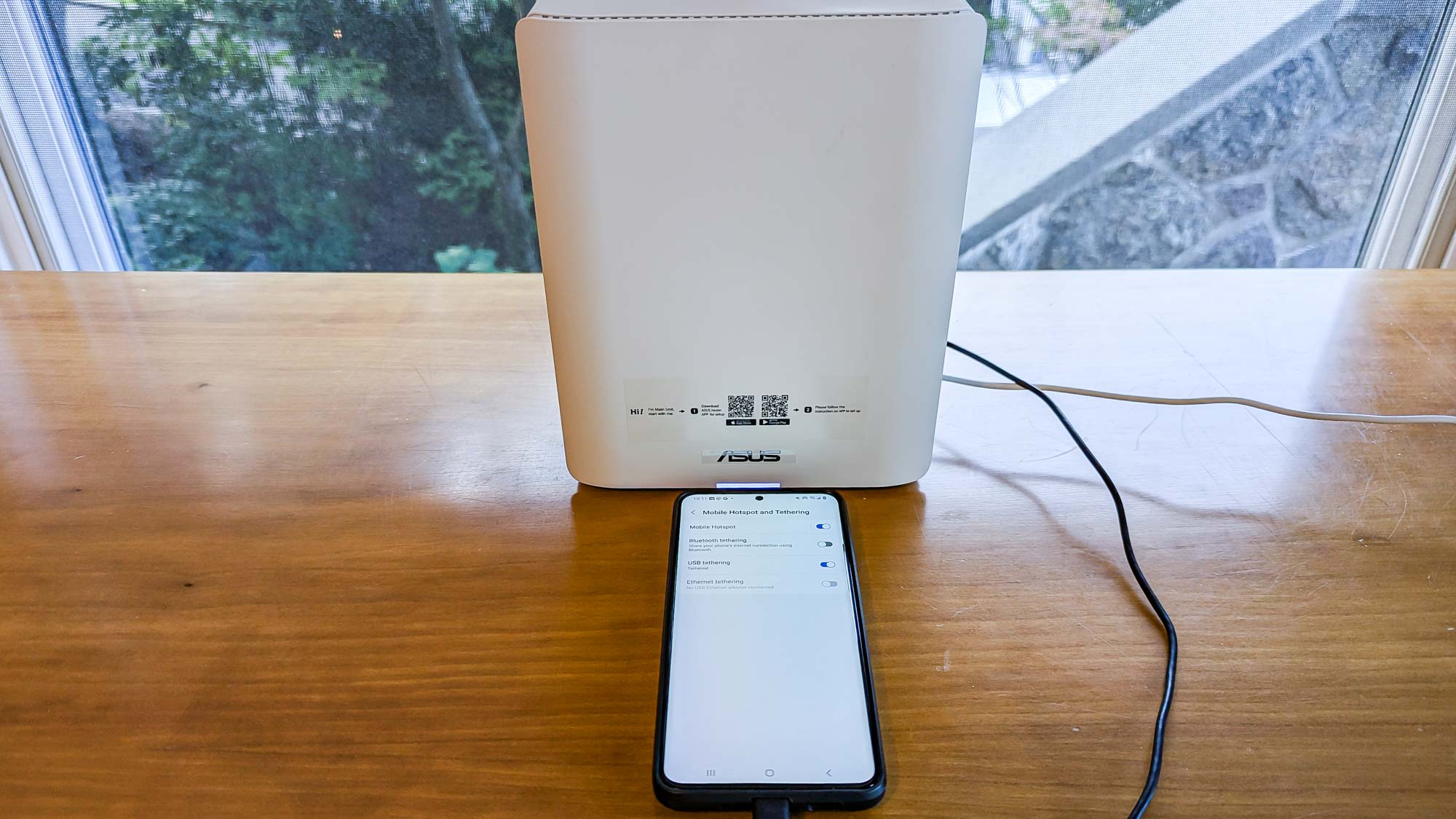
Specifications
Reasons to buy
Reasons to avoid
The Asus ZenWiFi BQ16 Pro immediately grabbed my attention as it uses a rectangular design instead of a cylindrical one, but it’s the blazing fast speeds that really set this mesh Wi-Fi system apart from the competition.
It has a clean, all-white look on the front and you’ll find all of its ports and its air vents for cooling with a '7' for Wi-Fi 7 etched into them around back. At 8.4 x 6.9 x 2.8 inches, the mesh router is on the large side though.
Asus has packed the ZenWiFi BQ16 Pro with useful features like completely free built-in security software and the ability to use your phone’s hotspot as a backup when your internet goes down.
It also has a ton of multi-gig ports to take full advantage of faster internet plans. When our reviewer Brian Nadel put this mesh Wi-Fi system to the test, that’s when it really shined by reaching a max download speed of 2.62 gigabits per second (Gbps) at close range (15 feet) thanks to its unique quad-band design.
It provided a solid 100-foot range but what impressed me the most is that even at 50 feet, the ZenWiFi BQ16 Pro was still blazing fast, hitting speeds of 1.5 Gbps.
The Asus ZenWiFi BQ16 Pro is certainly on the expensive side at over $1,000 for a two-pack. However, if you have multi-gig internet and want to put Wi-Fi 7’s speeds to the test while future-proofing your home network, it’s an easy mesh Wi-Fi system to recommend.
- Read our full Asus ZenWiFi BQ16 Pro review
The best budget mesh Wi Fi system
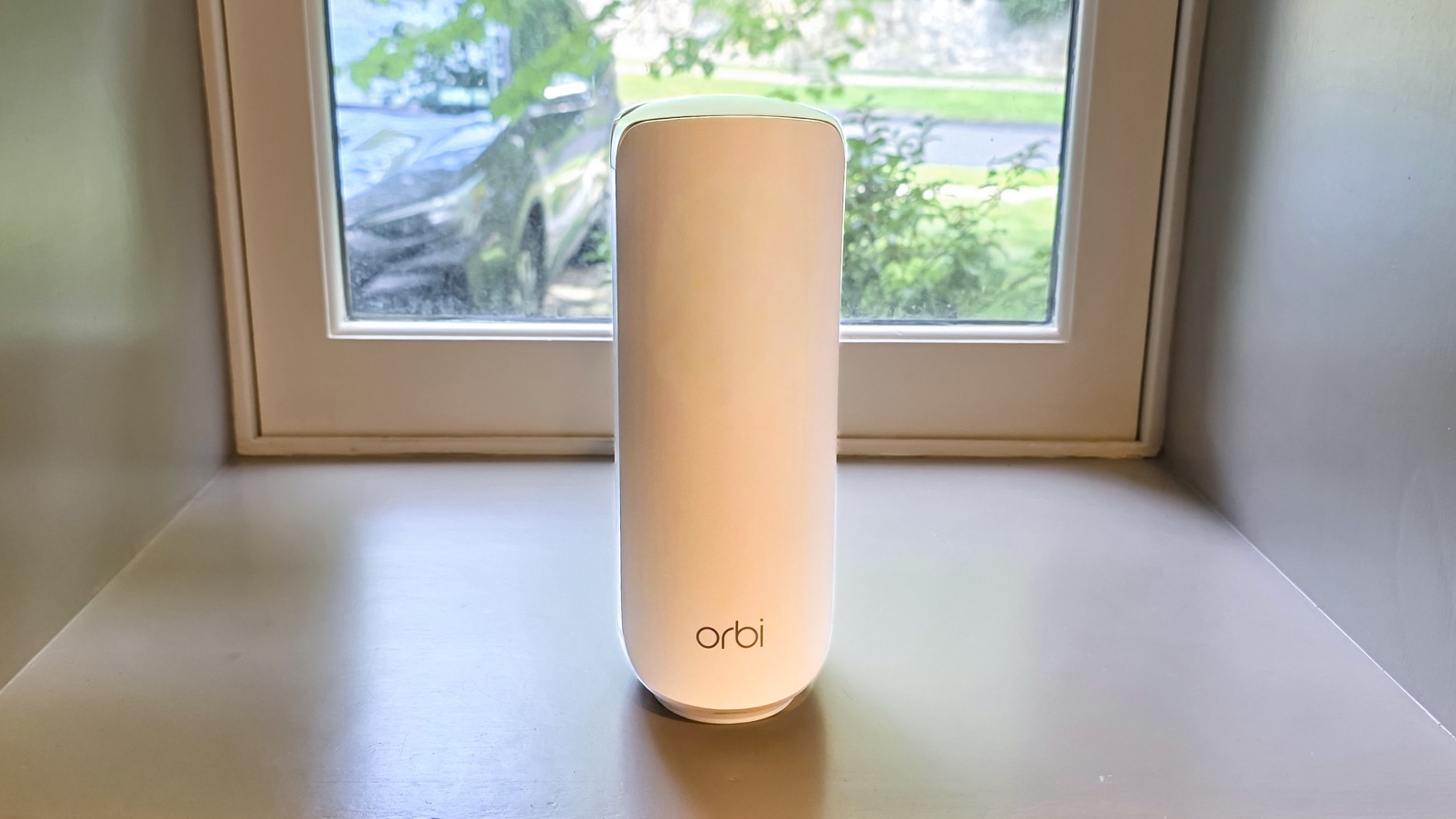
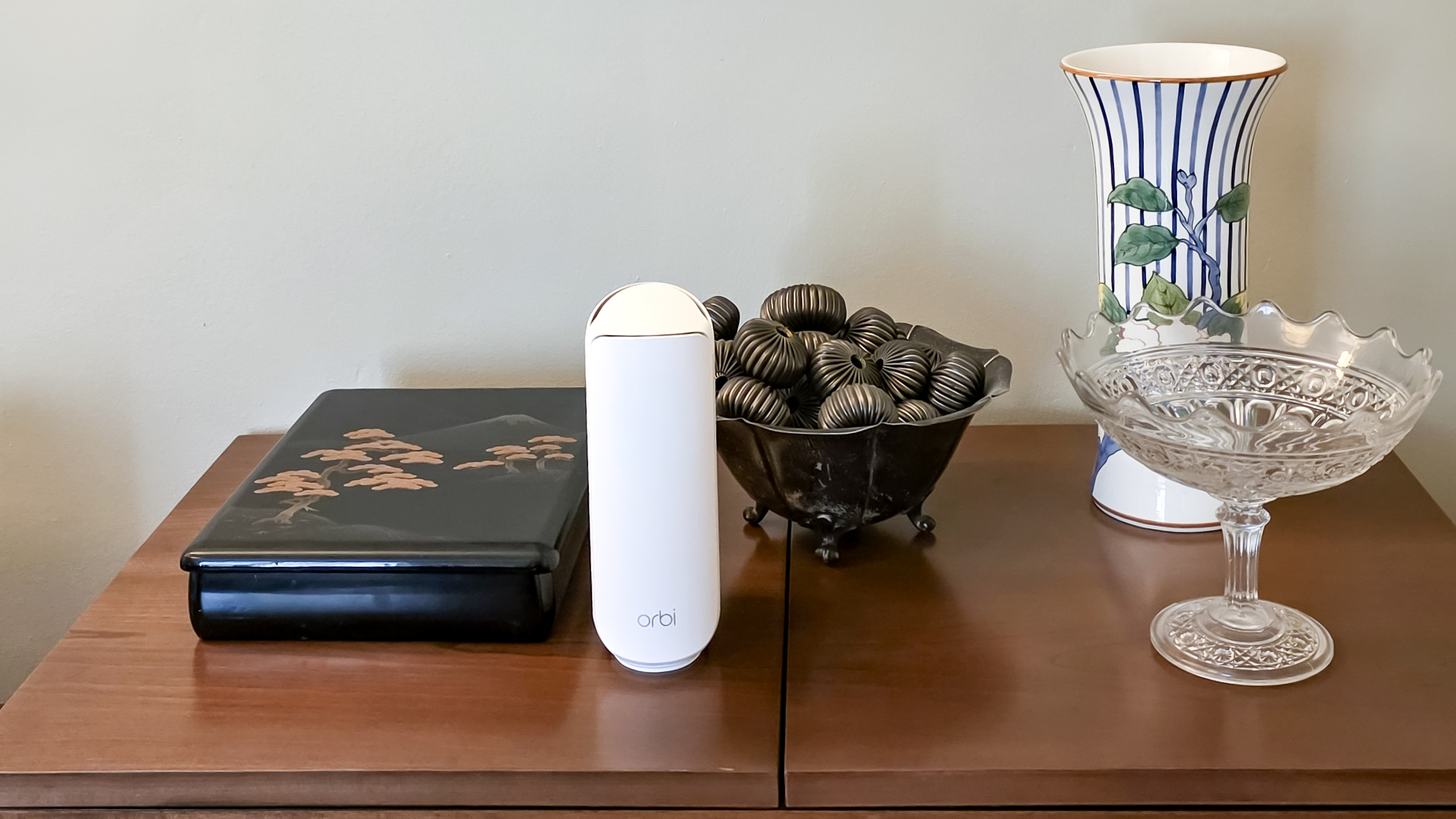
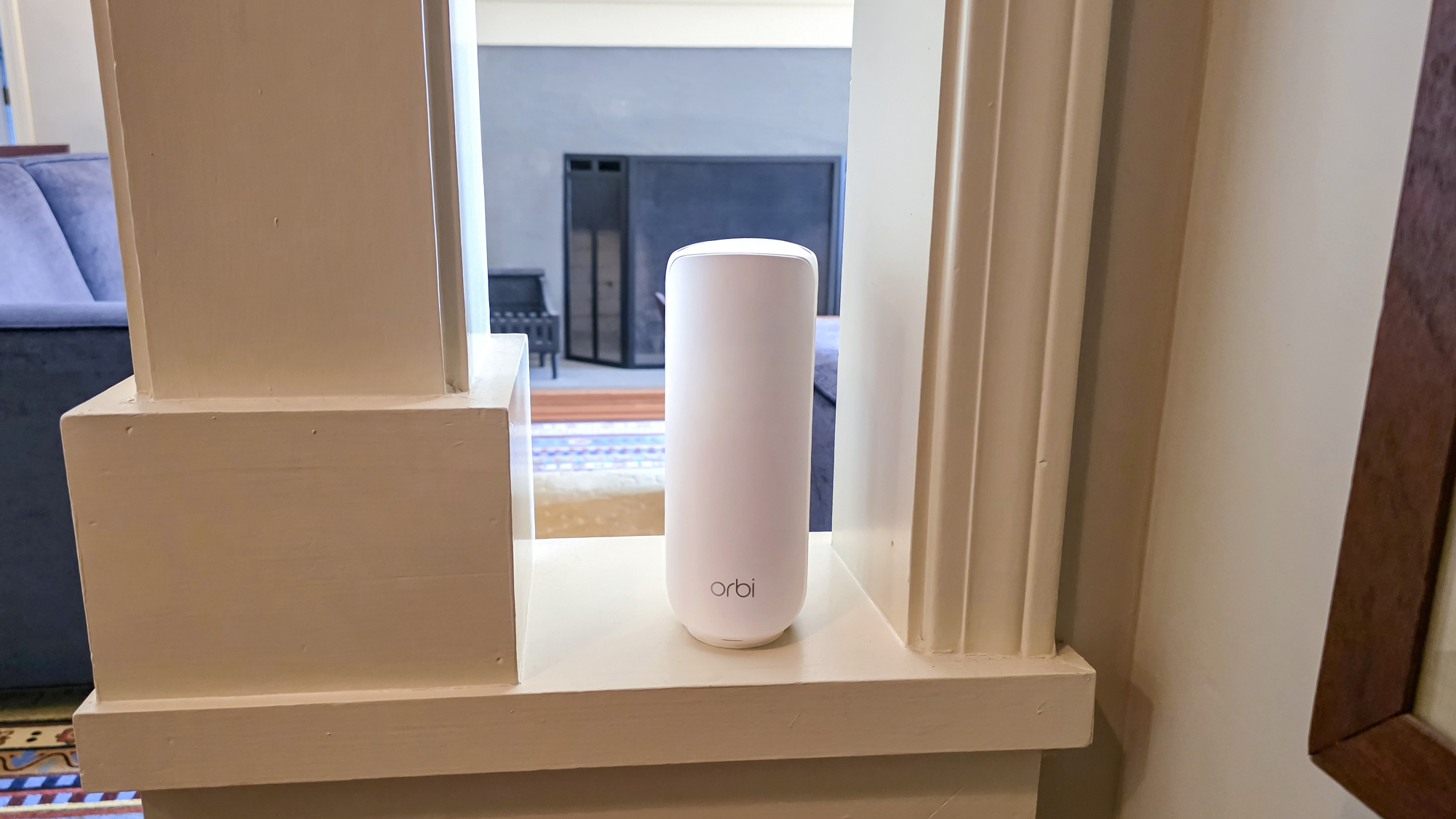
Specifications
Reasons to buy
Reasons to avoid
The Netgear Orbi 370 is a compact, dual-band Wi-Fi 7 mesh kit that costs significantly less than the company’s premium Orbi devices, without sacrificing the reliability and whole-home coverage they’re known for. You can get the Orbi 370 in a three-pack for just $350, which is an incredible value when you take into consideration that the top-of-the-line Orbi 970 costs over $2,000 to fill a similar home with a strong Wi-Fi signal. This is why I’ve swapped out my previous budget pick, the Wi-Fi 6E-powered TP-Link Deco XE75, with the Orbi 370 even though it’s a dual-band instead of a tri-band mesh kit.
Like the MSI Roamii BE Lite, this dual-band Wi-Fi 7 mesh kit doesn’t give you access to the faster 6 GHz band. However, this does keep the cost down and you still get access to most of Wi-Fi 7’s best features. As such, during testing, Brian saw max download speeds of 1.07 Gbps at close range (15 feet). These speeds were slightly ahead of the Roamii BE Lite—a trend that continued across Brian's 50, 75, and 90-foot tests. What was really surprising though, was how the Orbi 370 demonstrated superior sustained performance, beating out the more expensive, tri-band Orbi 770 at 50 feet with a download speed of 515.4 Mbps versus 391.1 Mbps. Likewise, Brian was impressed by just how well the Orbi 370 could send a strong signal even through a wall into an adjacent room.
At 8.0 x 4.7 x 3.0 inches, the Orbi 370 is Netgear’s smallest mesh router yet, making its satellites exceptionally easy to place around your home for seamless coverage. However, due to their compact size and budget-friendly price, port selection is limited. The main unit that acts as your router has two 2.5 Gbps Ethernet ports while the satellites only have a single 2.5 Gbps port around back. This may seem quite limiting for power users but you can always add a network switch for more ports. The Orbi 370 certainly won’t be for everyone, but if you want to fix your home's dead zones with a highly dependable, Wi-Fi 7-powered mesh kit on a budget, it could be the perfect fit.
- Read our full Netgear Orbi 370 review
The best mesh Wi Fi system for range
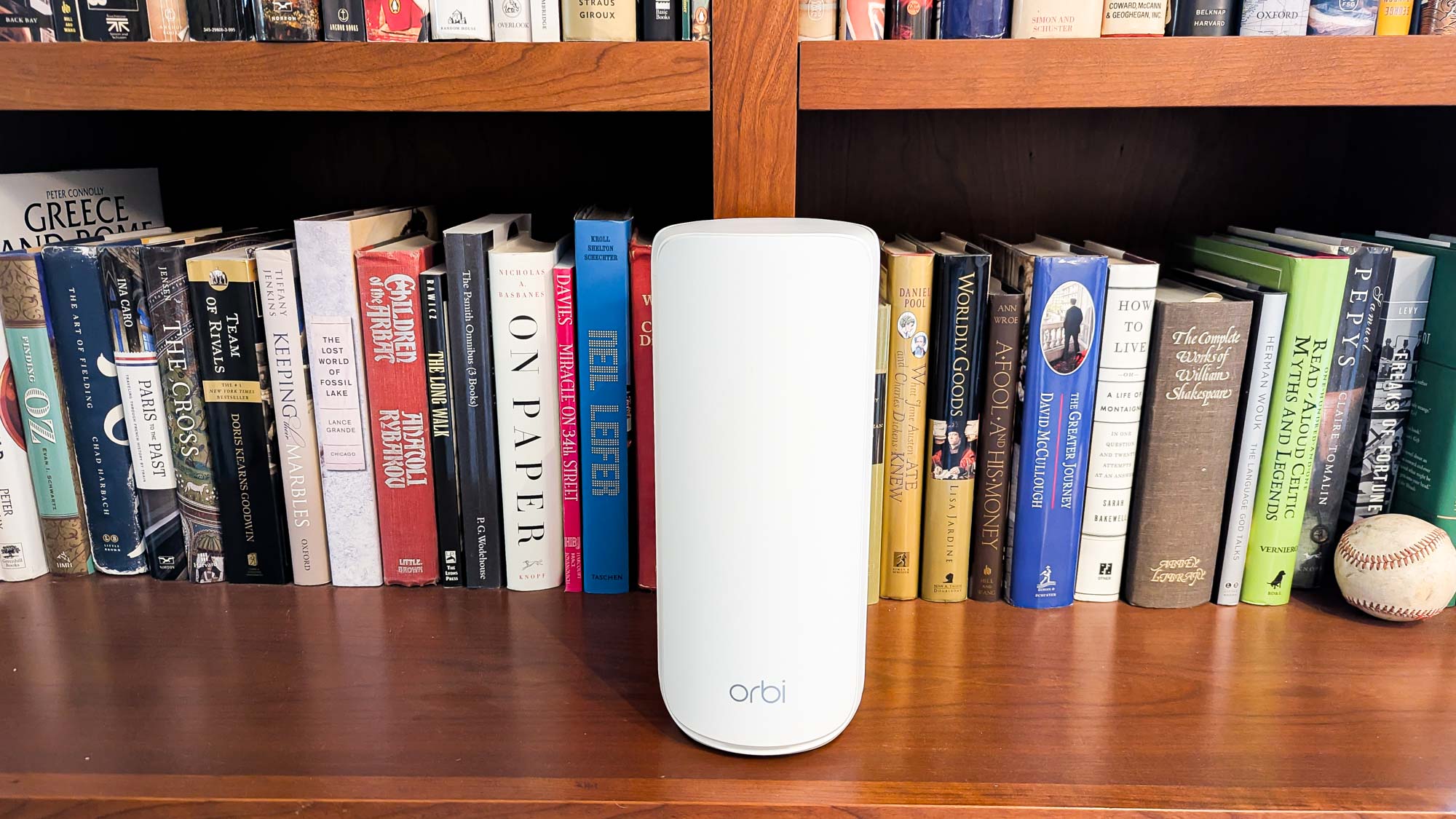
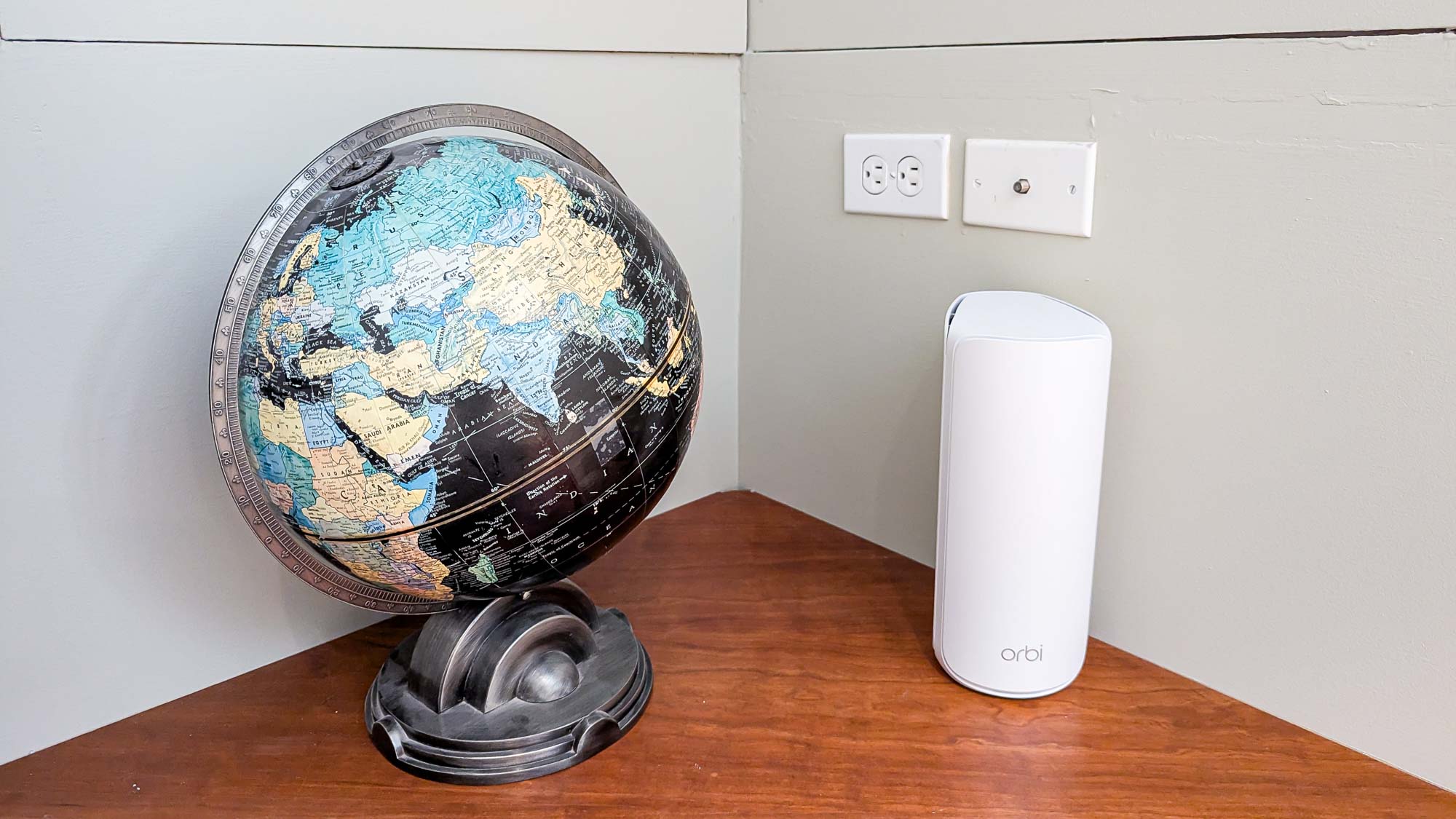
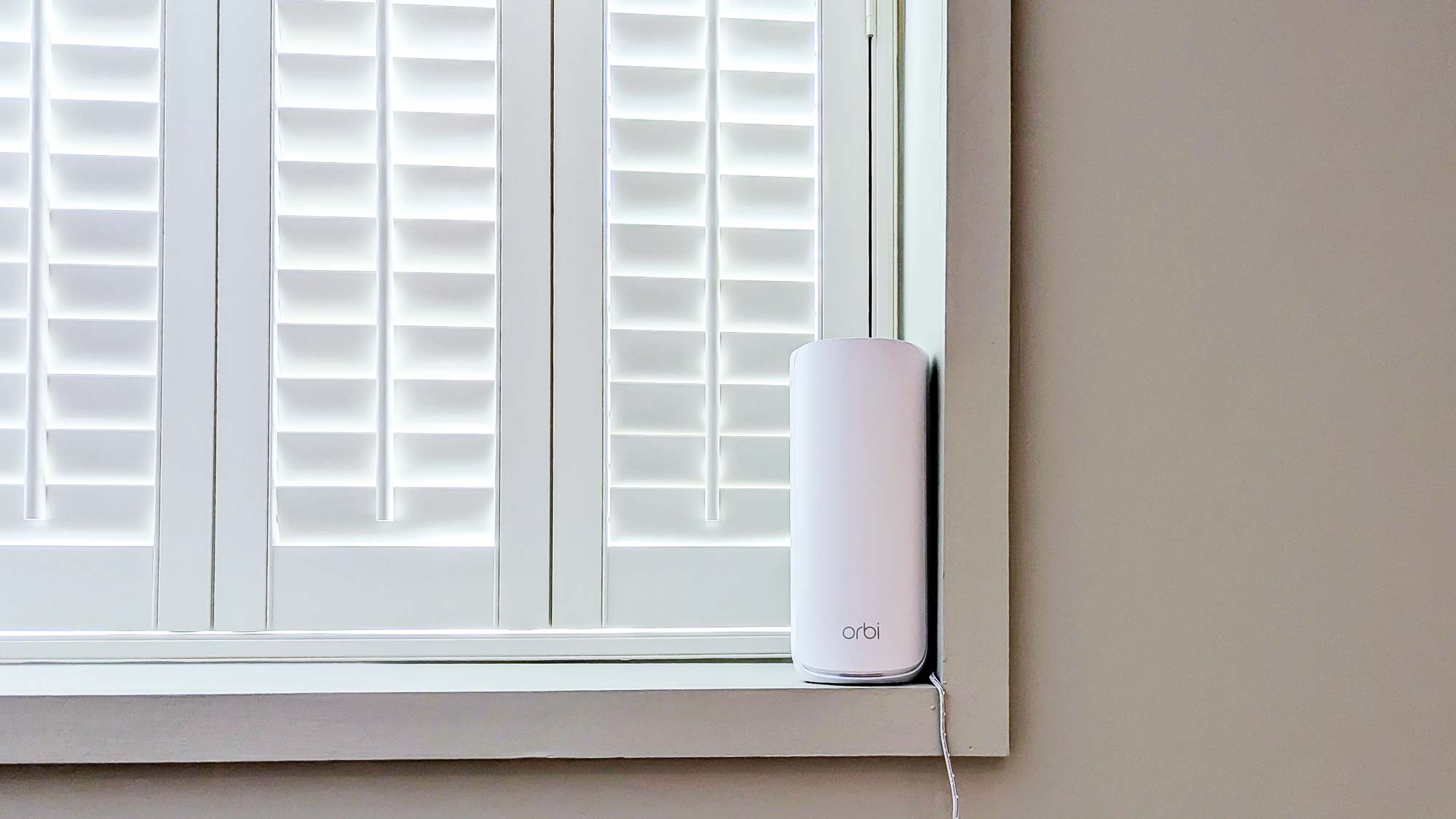
Specifications
Reasons to buy
Reasons to avoid
The Netgear Orbi 870 is a powerful mesh Wi-Fi system that really excels at medium and long range, where it even outperformed its larger and more expensive older sibling. At 10.6 x 5.8 x 4.4 inches, this mesh kit is in the middle of Netgear’s Orbi lineup in both size and speed.
Despite its more premium price, I really like the new more cylindrical design with a cleaner overall look of the Orbi 870 and the rest of the company’s Wi-Fi 7-powered mesh kits. While you’ll often see it in white at online retailers, you can actually get an all-black version too but only on Netgear’s site.
The Orbi 870 is a very reliable and feature-packed mesh Wi-Fi system that’s ideal for futureproofing your home network thanks to its slew of multi-gig ports including a 10 Gbps input. In his testing, Brian saw speeds of 1.83 Gbps at close range (15 feet).
However, it was the Orbi 870’s mid and long range performance that impressed him the most. For instance at 50 and 75 feet, this mesh Wi-Fi system had download speeds of over 600 Mbps, beating both the entry-level Orbi 770 and even the Orbi 970 at the top of Netgear’s mesh lineup.
Even at a distance of 90 feet away from Brian’s test laptop, it was at just over 100 Mbps while the Orbi 970 and even TP-Link’s Deco BE85 were under 50 Mbps. At $1,000 for a two-pack, the Orbi 870 is certainly an investment just like with the rest of the devices in Netgear’s Orbi line.
However, if you have a large home you want to fill with a strong Wi-Fi signal and a top tier multi-gig internet plan, it could definitely be worth it. Just keep in mind that you will need to set aside some extra cash if you want to secure your home network with it too using Netgear’s Armor security package or want extended technical support as only 90 days are included.
- Read our full Netgear Orbi 870 review.
The best mesh Wi Fi system for gaming
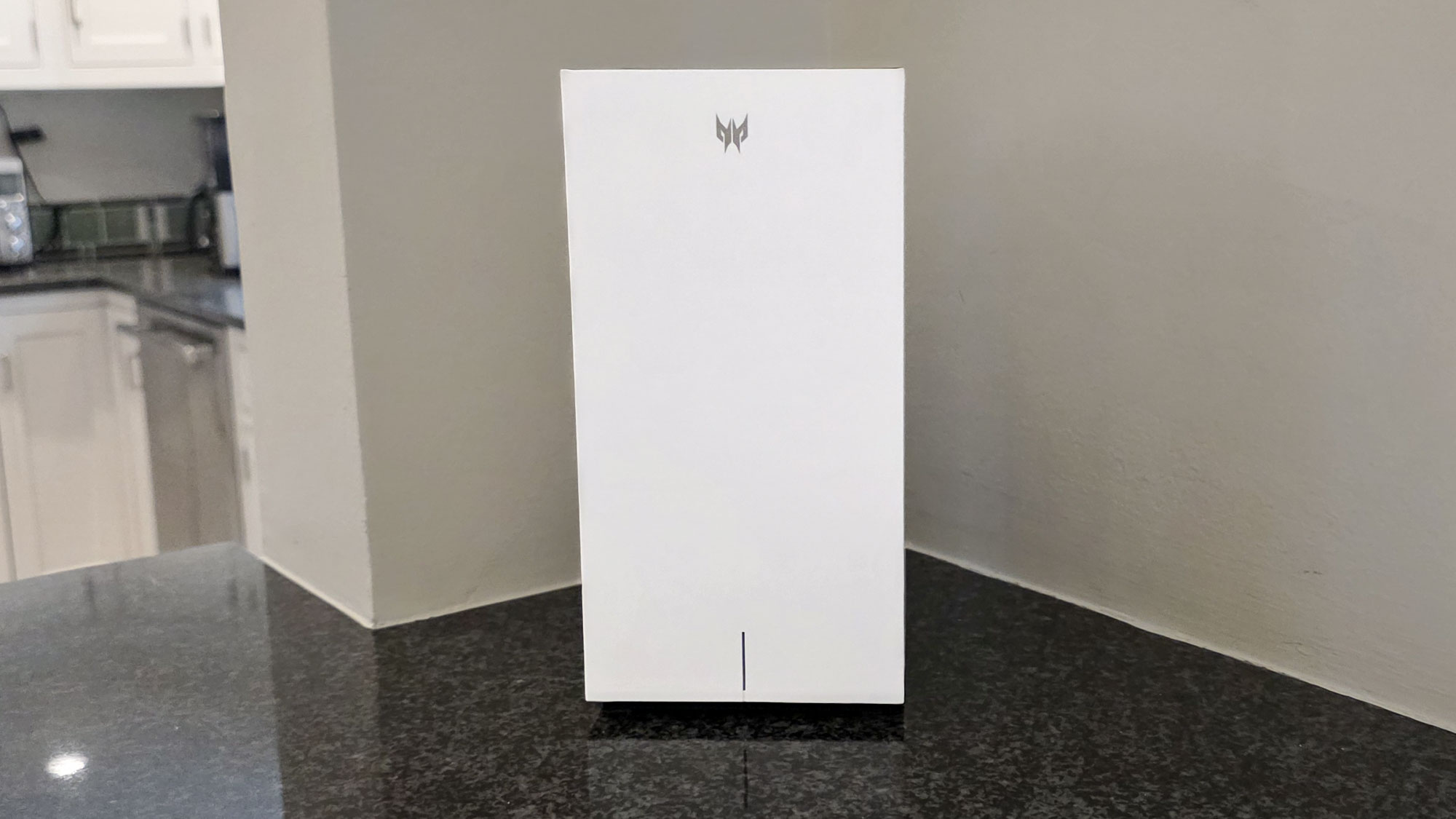
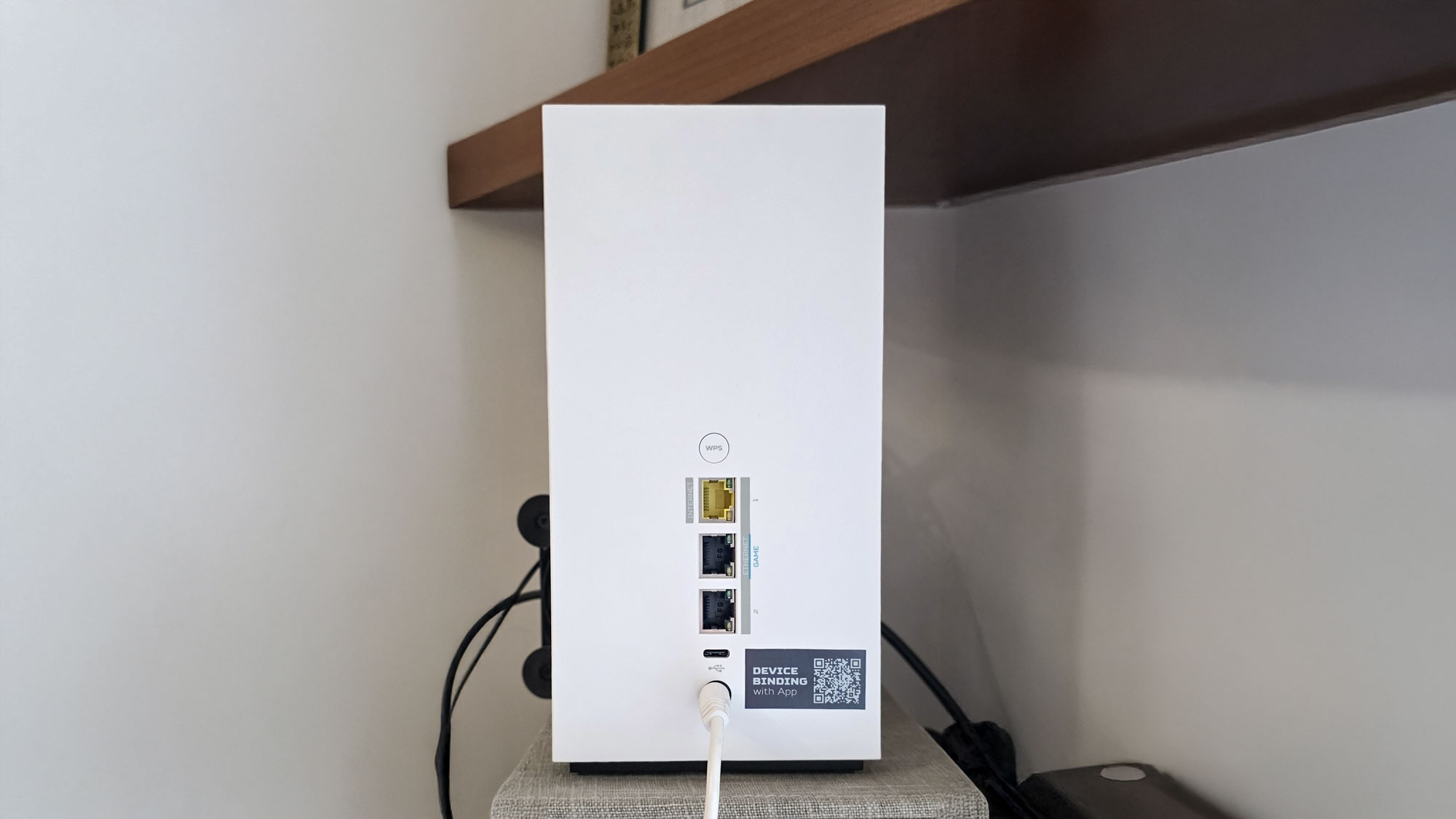
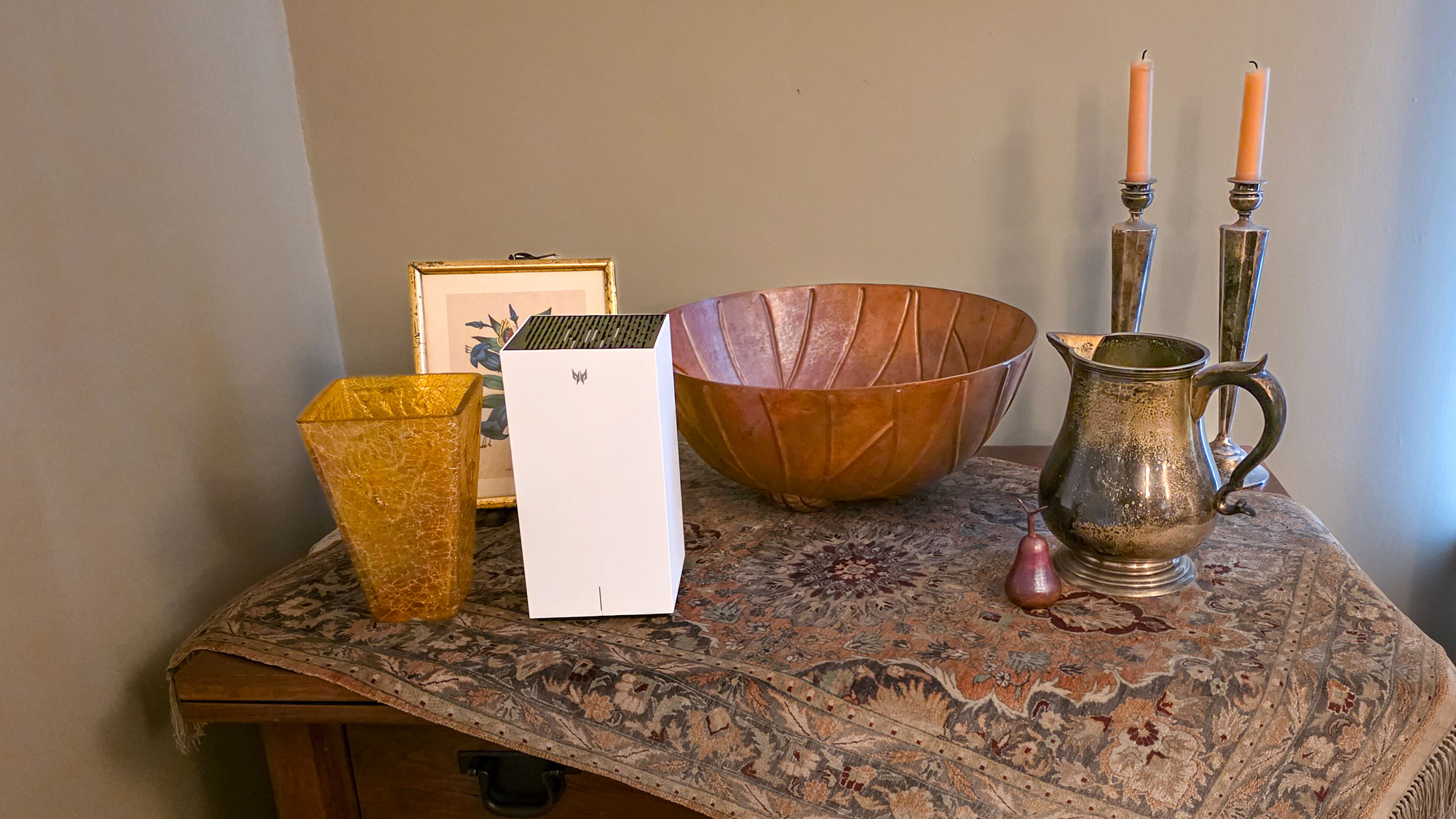
Specifications
Reasons to buy
Reasons to avoid
The Acer Predator Connect T7 is a mesh Wi-Fi system with a heavy focus on gamers. However, unlike my previous mesh router pick for gaming, the Asus ROG Rapture GT6, it’s a Wi-Fi 7-powered device with a much more subtle look.
Instead of RGB and lots of logos, the Predator Connect T7 features a taller, rectangular design in white or black and at first glance, looks quite similar to an Xbox Series X. There’s a splash of RGB lighting on the top but this mesh kit has a sleeker and more restrained look that I think definitely works in its favor.
Just like with the best gaming routers, the Predator Connect T7 has a low-latency design which uses Intel’s Killer Prioritization engine for peak gaming performance. It also comes with free built-in security software and makes full use of all of Wi-Fi 7’s best features.
During testing, Brian saw download speeds of 1.9 Gbps at close range (15 feet) with good mid-range performance too. While the Predator Connect T7 has a multi-gig input port, its wired Ethernet ports are limited to gigabit speeds, so plugging in a gaming laptop won’t give you a significant speed boost over connecting via Wi-Fi.
The Acer Predator Connect T7 is one of the few mesh Wi-Fi systems specifically designed for gamers and if you want a mesh router that looks as slick as your gaming PC, it’s a big step up over the Asus ROG Rapture GT7.
However, it is on the expensive side at $330 per device and unlike with other mesh kits, you won’t see any discounts at all when buying a multi-pack. Still, if you want gaming-level network performance with the added benefits of mesh and want something less flashy, the Predator Connect T7 is an excellent mesh Wi-Fi system and the only one for gamers with Wi-Fi 7 support so far.
- Read our full Acer Predator Connect T7 review
The best mesh Wi Fi system for simplicity
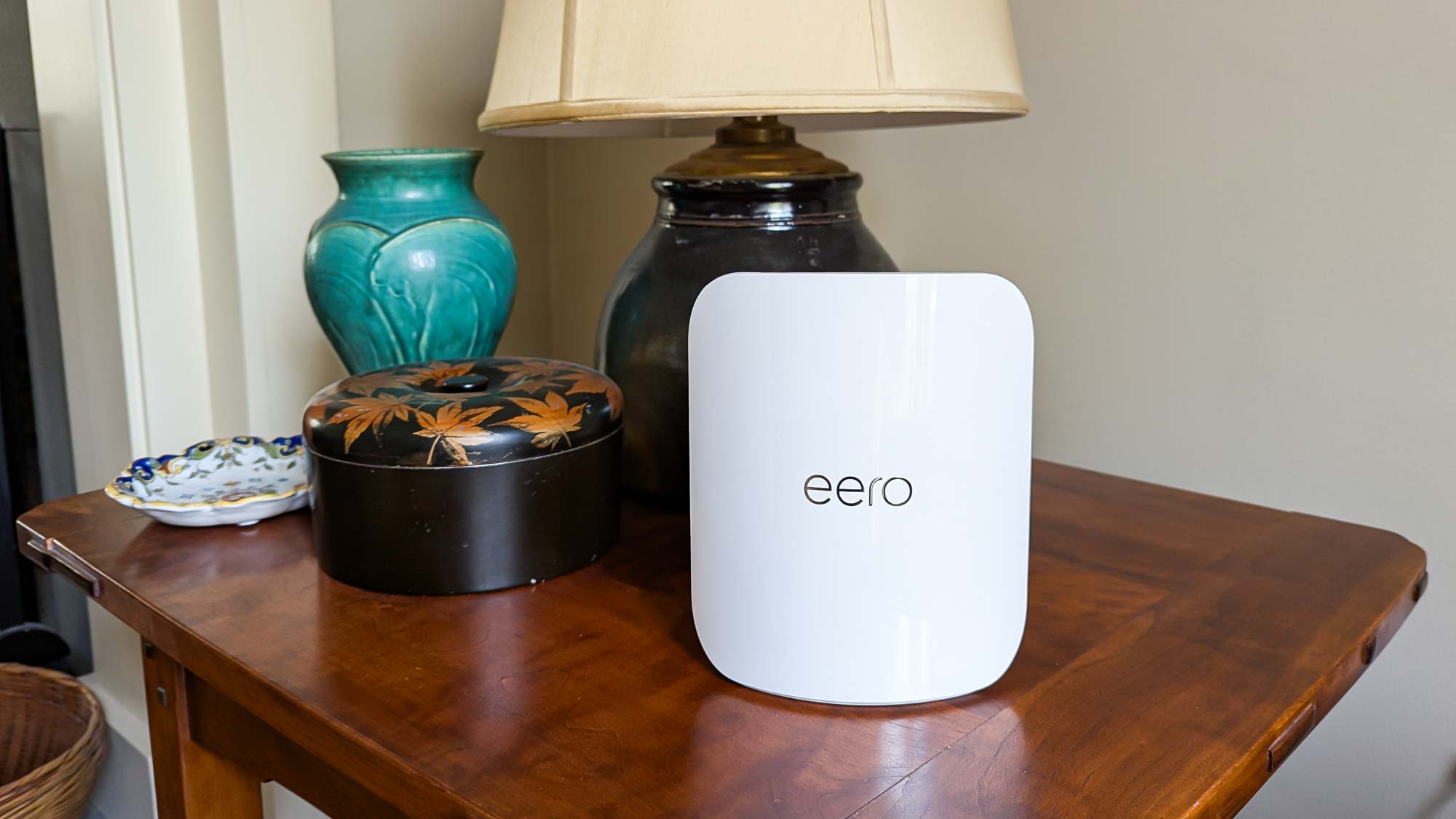
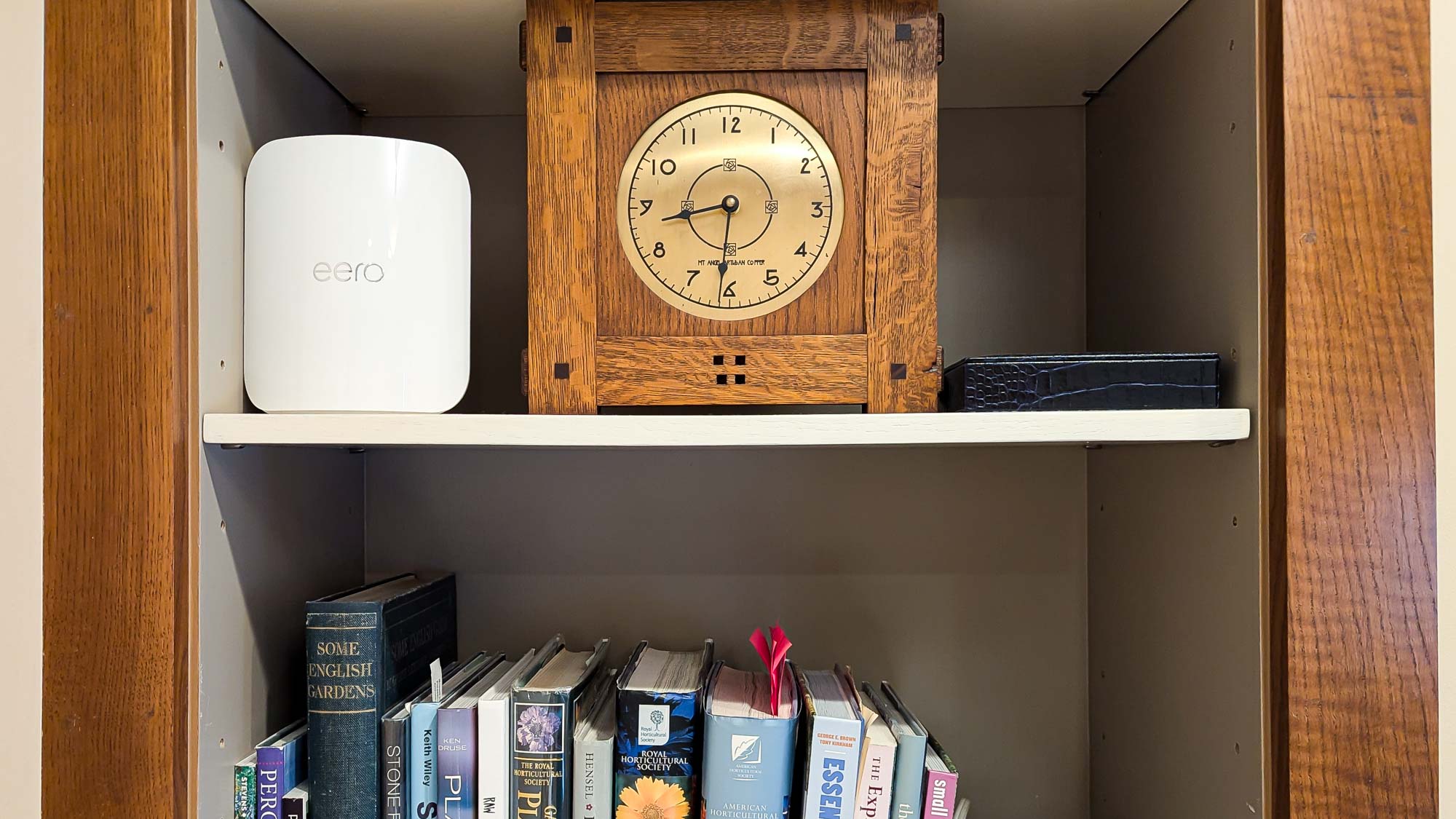
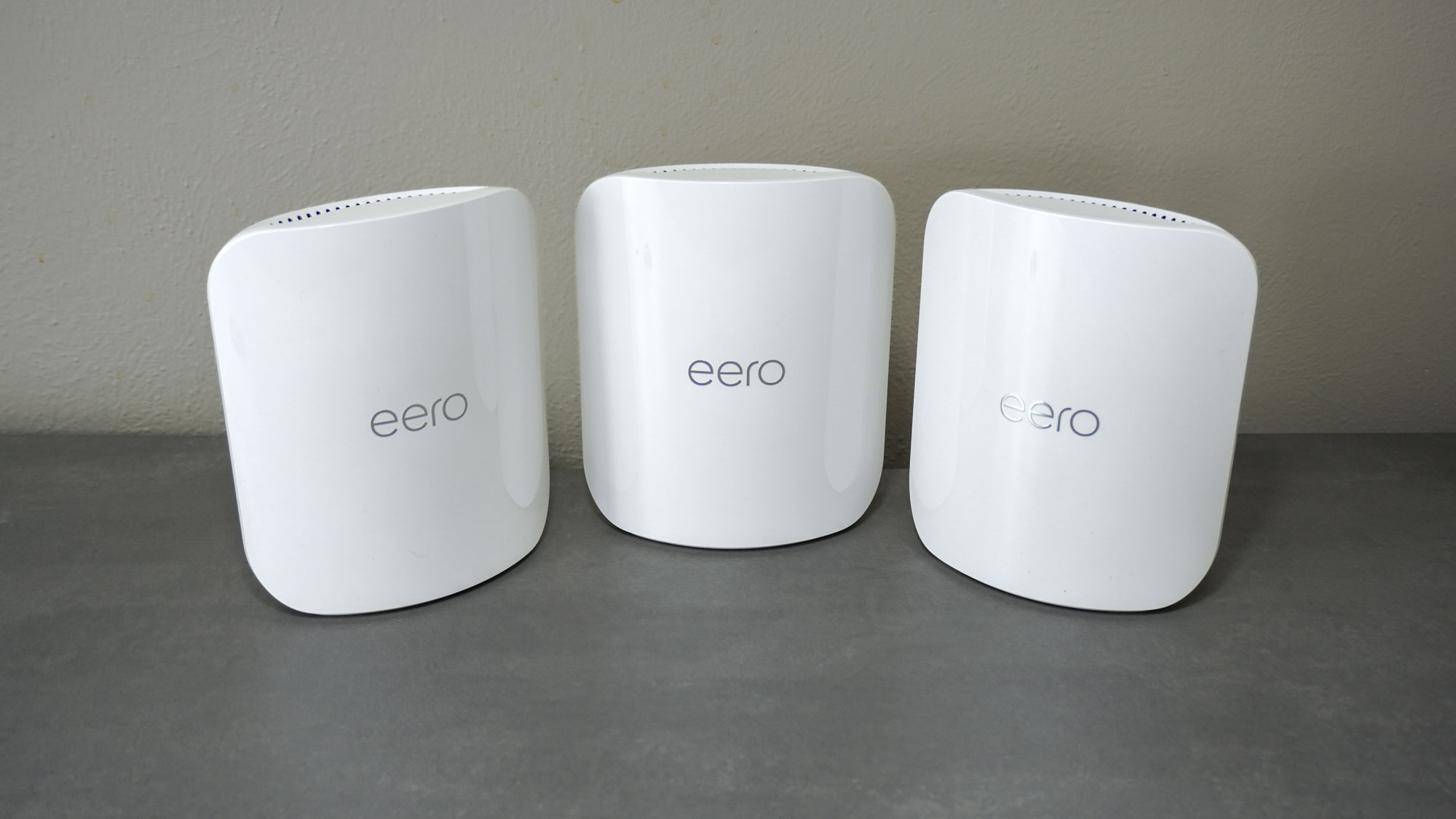
Specifications
Reasons to buy
Reasons to avoid
The Eero Pro 7 is a smaller and sleeker mesh Wi-Fi system that’s incredibly simple to set up and use. Unlike Eero’s past mesh kits which had a puck-shaped design, this one has a rounded rectangular shape and at 7.1 x 5.8 x 2.6 inches, you won’t have any trouble finding a place for it and its satellites around your home.
After testing the larger, more powerful Eero Max 7 myself, I really like the Pro 7’s more compact design and the fact that it's significantly cheaper too. The biggest selling point of the Pro 7 and Eero’s other mesh Wi-Fi systems is that even a home networking novice will have no trouble at all getting them up and running.
Setup and configuration is handled entirely through the very user-friendly Eero app and besides how it looks, I really like the way that updates are downloaded and installed automatically so your mesh Wi-Fi system is always running the latest software.
In his testing, Brian saw download speeds of 1.9 Gbps at close distances (15 feet) but the Pro 7 was equally impressive at mid-range distances with speeds just under a gigabit.
The Eero Pro 7 does cost a bit more than the competition but nowhere close to what you’d pay for an Orbi mesh kit. As an Amazon company, Eero works great with your Alexa-powered and other smart home devices and you can even use an Echo Dot as a mesh extender to add some extra range to your home network.
If you want a fast and capable Wi-Fi 7-powered mesh system that’s simple to set up and just works, the Eero Pro 7 is very easy to recommend, especially since its a lot cheaper than the Max 7. The one downside is that you’re limited to just two Ethernet ports but they are of the faster 5 Gbps variety which is great if you have a multi-gig internet plan.
- Read our full Eero Pro 7 review
Best mesh Wi Fi system for fiber
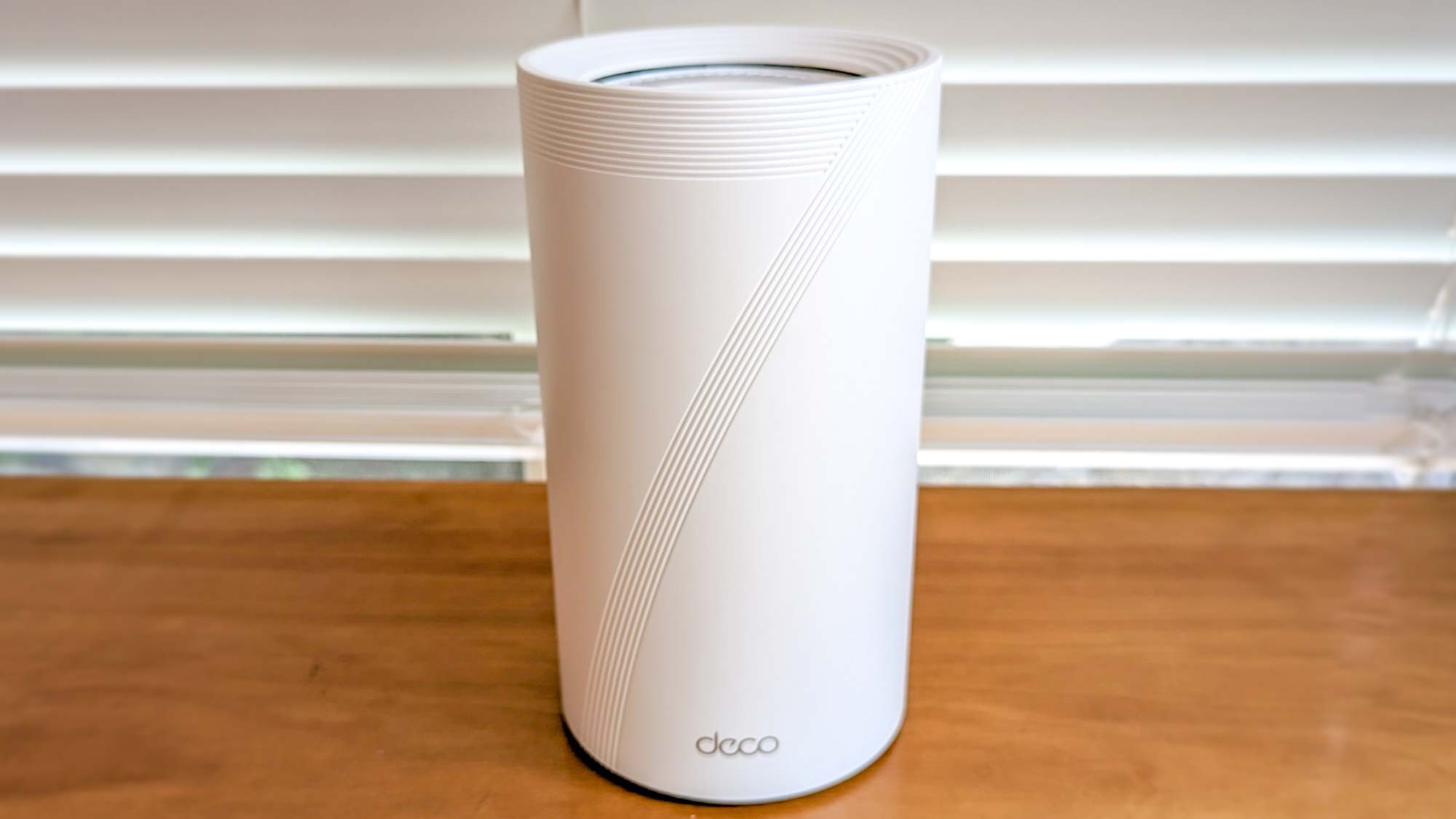
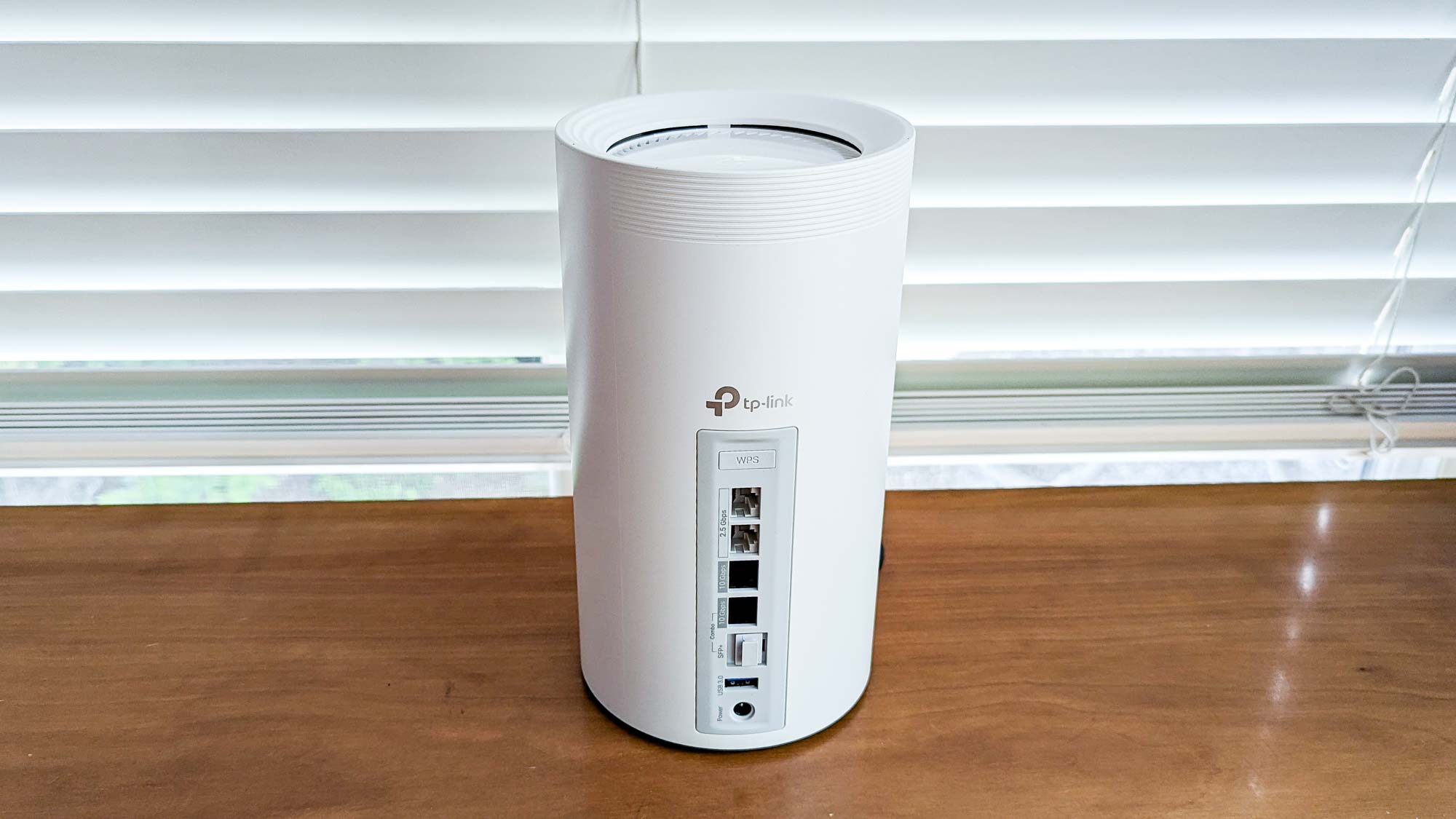
Specifications
Reasons to buy
Reasons to avoid
The TP-Link Deco BE85 is a top-of-the-line mesh Wi-Fi system that was actually the first mesh router with Wi-Fi 7 support. It builds on the cylindrical design of the Deco XE75 with a more refined and polished look but packs in a ton of multi-gig and even a USB port.
As someone who upgraded to fiber internet, I love how it has its own SFP+ port which lets you plug your fiber line directly in at the back instead of into a separate ONT box first. Even if you’re still using one of the best cable modems though, the Deco BE85 is a powerful mesh Wi-Fi system that won’t disappoint when it comes to performance.
One thing that’s really convenient about this mesh kit and TP-Link’s other Deco devices is that they’re all identical out of the box and you can use any of them as your main router. The company’s Deco app also makes setup and configuration very easy and in my experience, it’s on par with Eero’s app in terms of usability.
During testing, Brian saw download speeds of 1.73 Gbps at a close distance (15 feet) and good mid-range speeds too. While this might seem a bit low for a premium mesh Wi-Fi system, Brian was one of the first people to get and review the Deco BE85. It's possible this has improved with firmware updates since its launch.
The Deco BE85 has come down in price since it launched but at $1,299 for a three-pack, it’s still expensive, even though this model does go on sale quite frequently. However, if you have a fast, multi-gig fiber internet plan and want top-notch Wi-Fi 7 performance, this mesh router is the only one I’ve seen yet with an SFP+ port around back.
If you don’t have fiber internet though, the less expensive TP-Link Deco BE63 is a good choice too. Regardless of which device you choose though, it’s worth noting that just like with Eero, all TP-Link Deco devices are compatible with one another, so you could always mix and match or upgrade to a more powerful model later on if you need to.
- Read our full TP-Link Deco BE85 review
Best mesh Wi-Fi system test results
| Header Cell - Column 0 | 15 feet | 50 feet | 75 feet | 90 feet |
|---|---|---|---|---|
Asus ZenWiFi BQ16 Pro | 2.620 Gbps | 1.532 Gbps | 567.8 Mbps | 46.7 Mbps |
Netgear Orbi 370 | 1.074 Gbps | 515.4 Mbps | 191.2 Mbps | 85.0 Mbps |
Netgear Orbi 870 | 1.820 Gbps | 627.4 Mbps | 628.6 Mbps | 102.6 Mbps |
Acer Predator Connect T7 | 1.914 Gbps | 476.0 Mbps | 231.5 Mbps | 121.0 Mbps |
Eero Pro 7 | 1.905 Gbps | 994.4 Mbps | 234.7 Mbps | 20.8 Mbps |
TP-Link Deco BE85 | 1.736 Gbps | 790.4 Mbps | 179.2 Mbps | 42.6 Mbps |
Meet our testers

As someone who's been working from home for the past seven years, Anthony Spadafora has tried everything from Wi-Fi extenders to powerline adapters to get the most out of his home network, before finally upgrading to a mesh Wi-Fi system. Along the way, he's tested out loads of different routers and network configurations. Based on what he's learned, Anthony tries to highlight the critical role Wi-Fi routers play in our day to day lives and how a mesh network can help solve the most common connectivity issues like Wi-Fi dead spots.

With experience in testing, using and evaluating wireless data from before Wi-Fi was even a word, Brian Nadel has tried out and reviewed every major router available in his home networking lab. A LAN nerd, his philosophy is to use the router the way you would, testing networking gear for ease of setup, performance, security and above all for value. The result is peace of mind when it comes to choosing the right router.
How we test the best mesh Wi-Fi systems
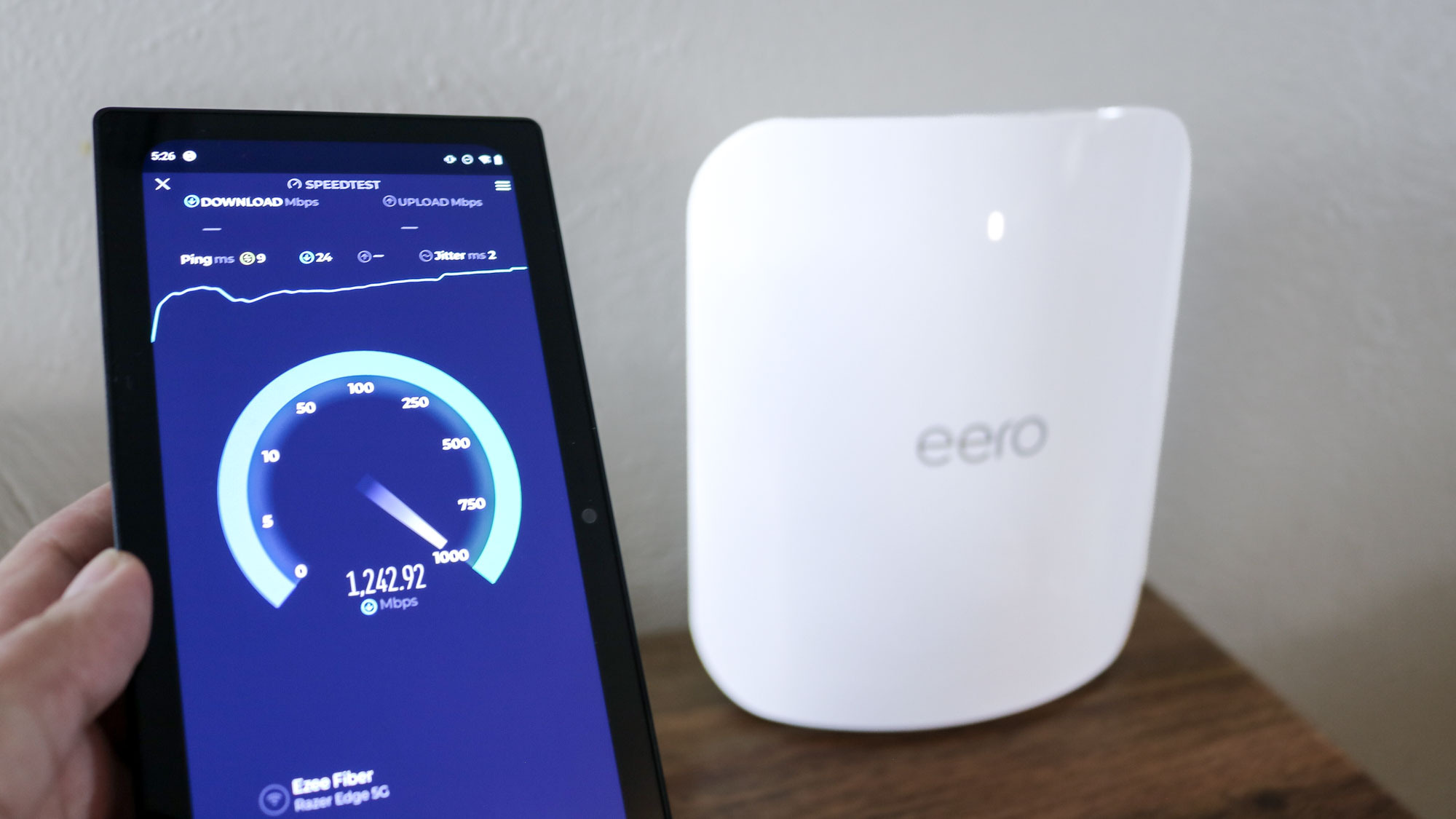
We test every mesh Wi-Fi system to measure performance and range, using Keysight IxChariot. Testing is done in a multi-story home with brick walls. As when we test standard routers, we look at performance at a distance to provide real-world information about coverage and speeds. In addition to lab testing, we evaluate the ease-of-setup and features of each device too.
We measure performance at a 15-foot distance without obstructions, so that we can gauge the maximum amount of data that a router can move. Higher throughput will serve you better in data-heavy uses, like streaming video, gaming, or connecting multiple users at once.
Range measures the furthest usable distance for a particular router. Longer ranges are better for larger homes, where rooms are spread out at a distance. We measure how much data a router can move at 15, 50, 75 and 100 feet, as well as the maximum coverage area of a mesh Wi-Fi system.
We also test how well each mesh Wi-Fi system transmits and receives signals through drywall, brick, concrete and even metal walls; and how each handles coverage in a two- or three-story home. They also go through additional testing to see how well each system does when sending a signal through the main router and through the included satellites.
How to choose the best mesh Wi-Fi system for you
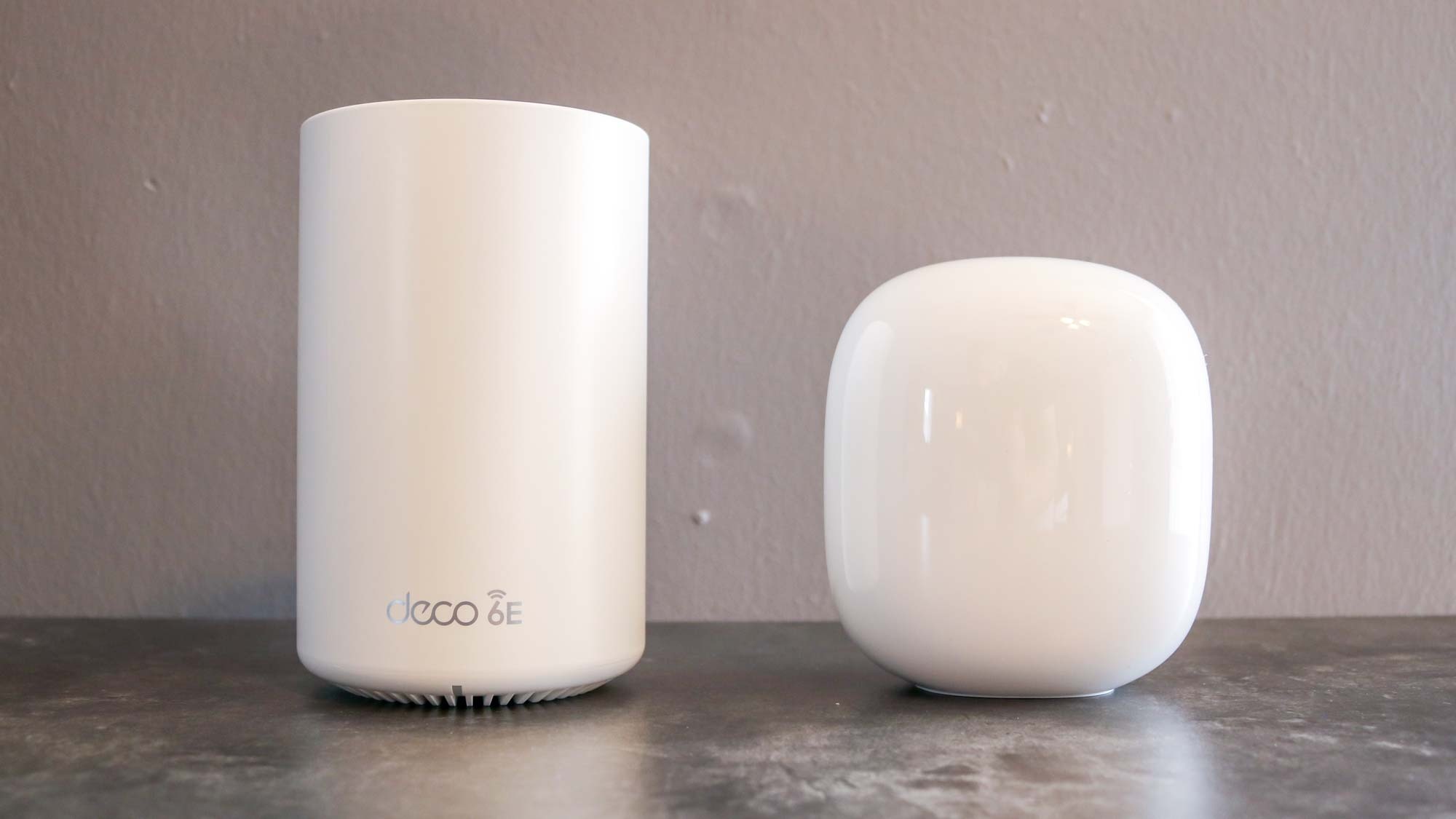
Coverage: If you have a larger home with 3,000 square feet or more, a regular router just won’t cut it. The same is true for multi-story homes and oddly laid out houses, which don’t necessarily match the range pattern of coverage most standalone routers deliver.
Even if your home looks like it may be well-served by a traditional Wi-Fi router, there are plenty of obstacles and signal-disruptions that can make it difficult to get strong wireless coverage in every part of your home. In this case, the usual steps to make your Wi-Fi faster may not work.
The basic guideline is this: If your router leaves you with Wi-Fi dead zones in your home or even out in your yard, you’re likely better off with a mesh Wi-Fi system instead.
Speed: Picking the right mesh Wi-Fi system is the same as with any other networking device. Our reviews examine the design, range and throughput performance, setup process and which settings you can adjust. We also look at each device’s built-in security features and parental controls. We even look at whether a mesh extension is easy to add to your home décor or whether it’s something you’ll want to tuck away out of sight.
All of our reviews dig into these aspects of a product while also highlighting any unique features worth considering in your decision making, like whether other devices from the same product line are intercompatible (like Amazon's Eero and TP-Link's Deco devices) or if you can use your phone's mobile hotspot as a backup when your internet goes down.
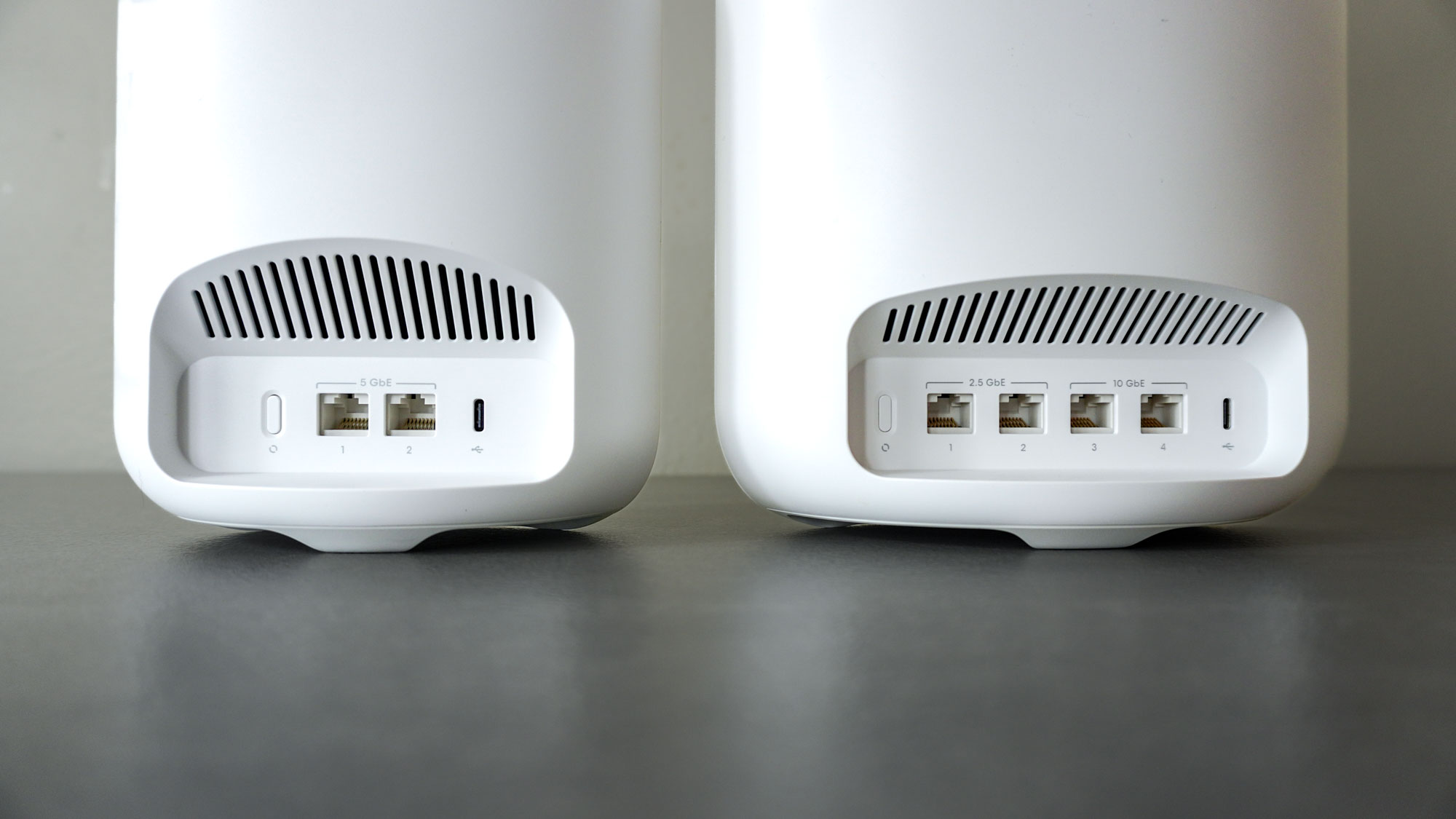
Ports: Though improved wireless connectivity is the main thing you want from a mesh Wi-Fi system, you’ll also want to think about wired connections.
Ethernet offers faster connectivity for devices like computers, game consoles and smart TVs that use more bandwidth and USB ports are useful for attaching older printers or storage to your network.
However, not every mesh system has several physical ports, so make sure you get a system that will meet your needs. Keep in mind though, you can always use an Ethernet switch to easily add more ports to your mesh router.
Price: For many shoppers, it all comes down to value — which mesh Wi-Fi system provides the most bang for your buck. So we also consider what you really get for your money, considering which features are worthwhile and how any given product compares with other devices from competing manufacturers.
Mesh routers range in price from $120 to $400 or more. As mesh systems use multiple devices, you can generally buy a complete mesh Wi-Fi system as a two or three-unit package at a discount. However, you can also buy individual satellite units to extend a mesh network further. Individual units often sell for $100 to $200, though specialized units that offer additional functionality may cost more.
The products on this list are our top picks as they are the best mesh Wi-Fi systems you can buy right now. Whether it’s a question of performance, value or features, we call out the products that deliver the best value and explain why they might be the perfect fit for your home.
Get instant access to breaking news, the hottest reviews, great deals and helpful tips.

Anthony Spadafora is the managing editor for security and home office furniture at Tom’s Guide where he covers everything from data breaches to password managers and the best way to cover your whole home or business with Wi-Fi. He also reviews standing desks, office chairs and other home office accessories with a penchant for building desk setups. Before joining the team, Anthony wrote for ITProPortal while living in Korea and later for TechRadar Pro after moving back to the US. Based in Houston, Texas, when he’s not writing Anthony can be found tinkering with PCs and game consoles, managing cables and upgrading his smart home.
 Club Benefits
Club Benefits





